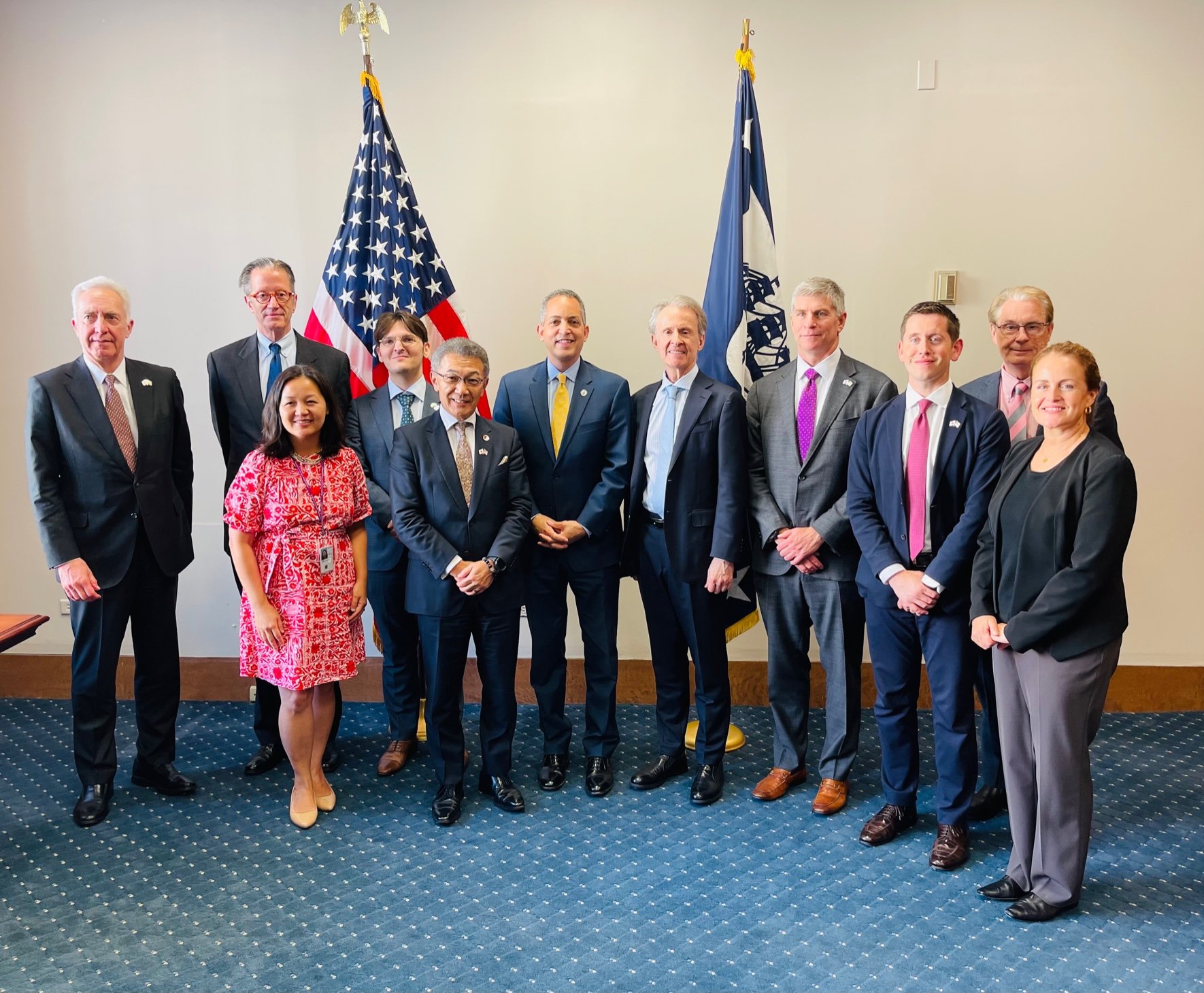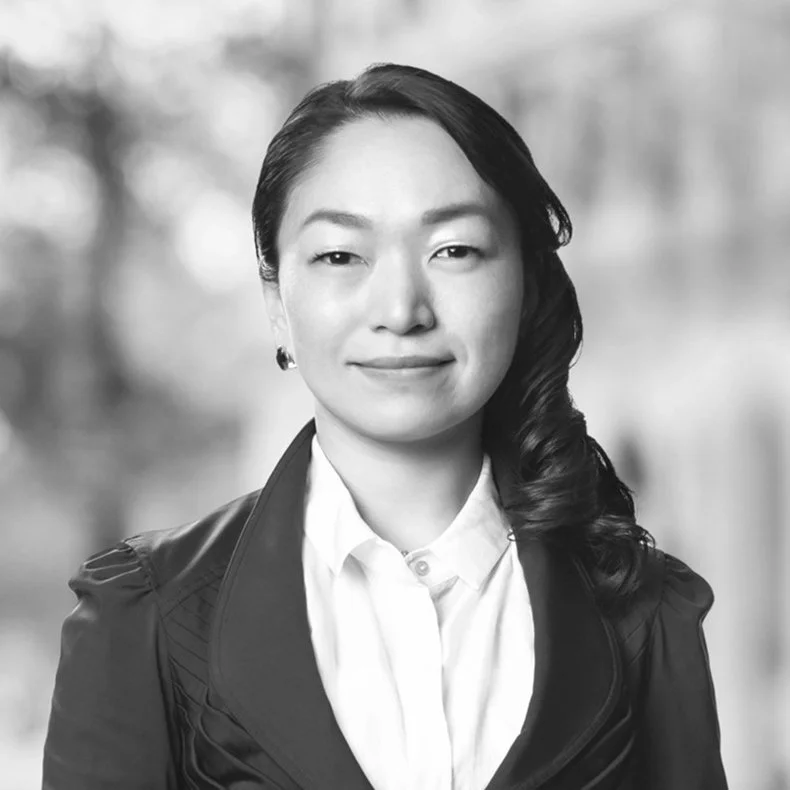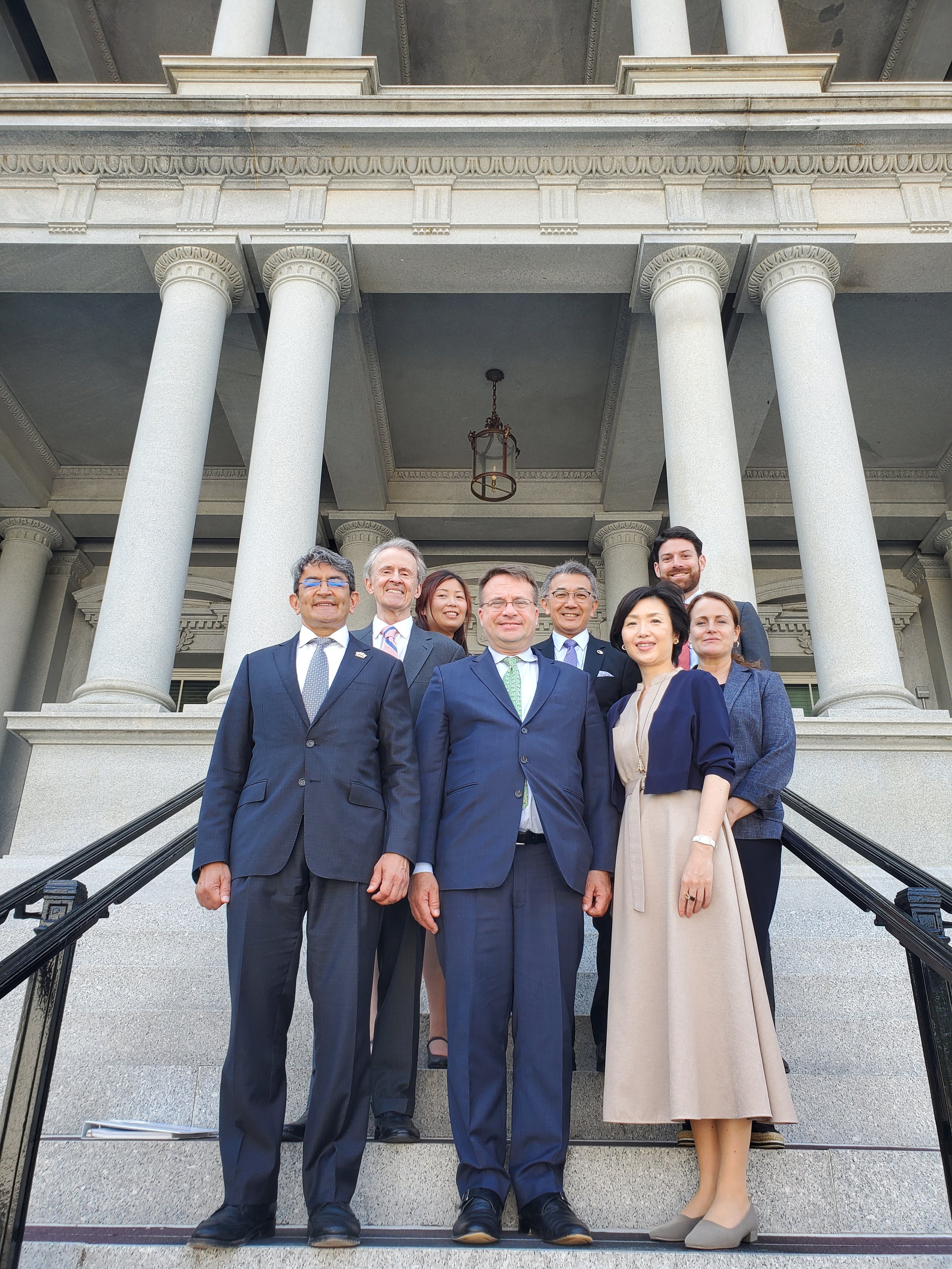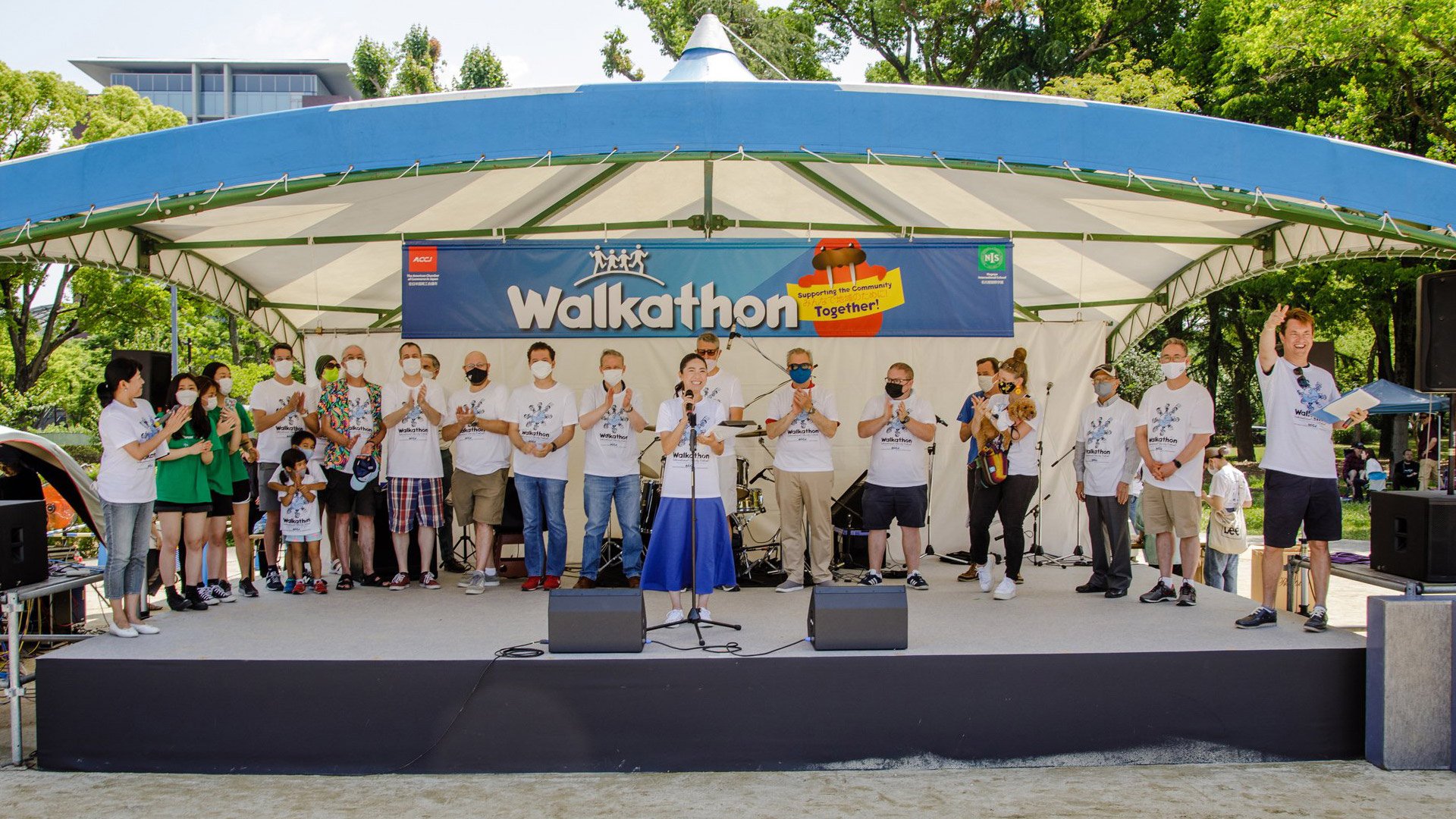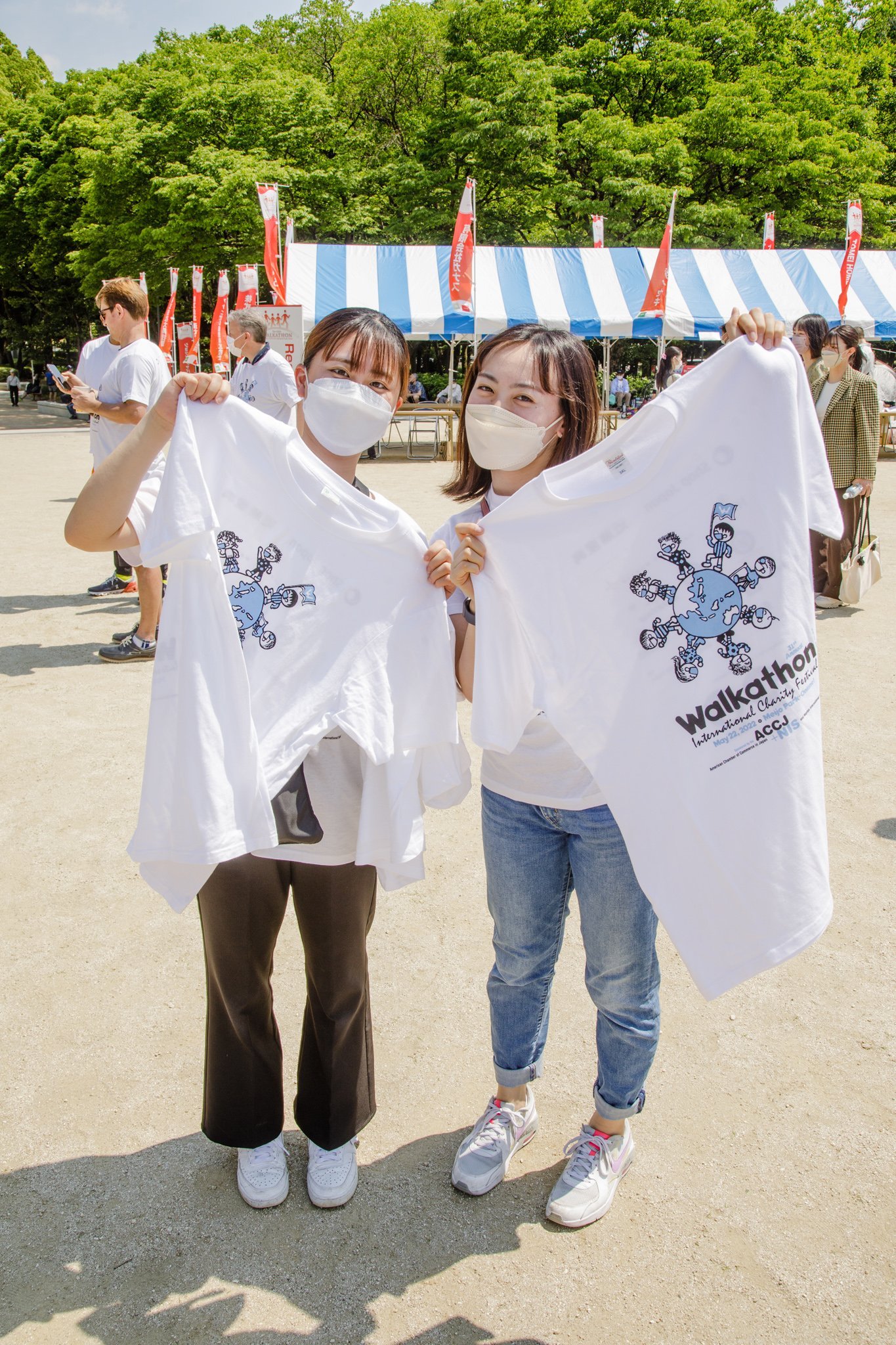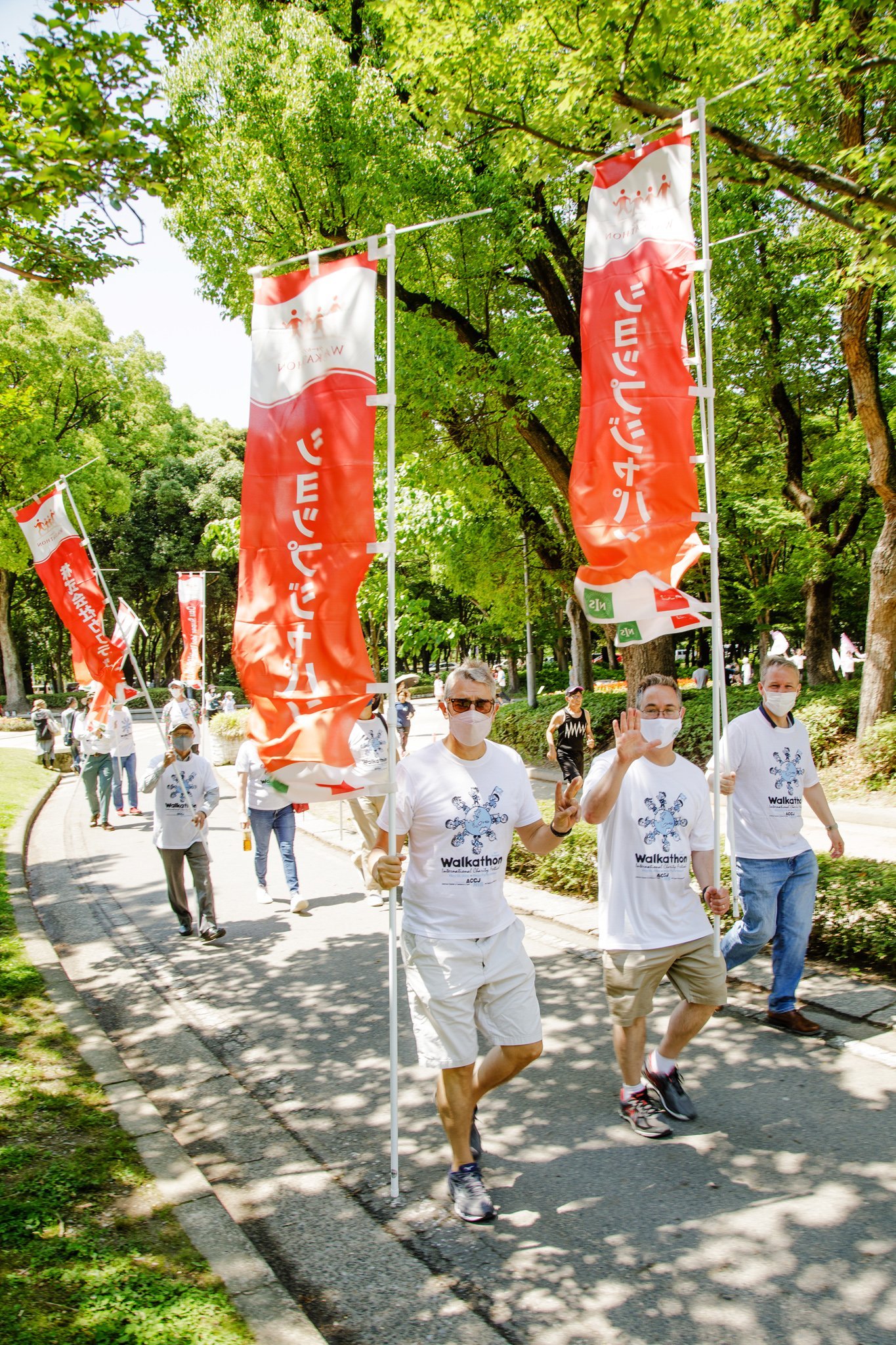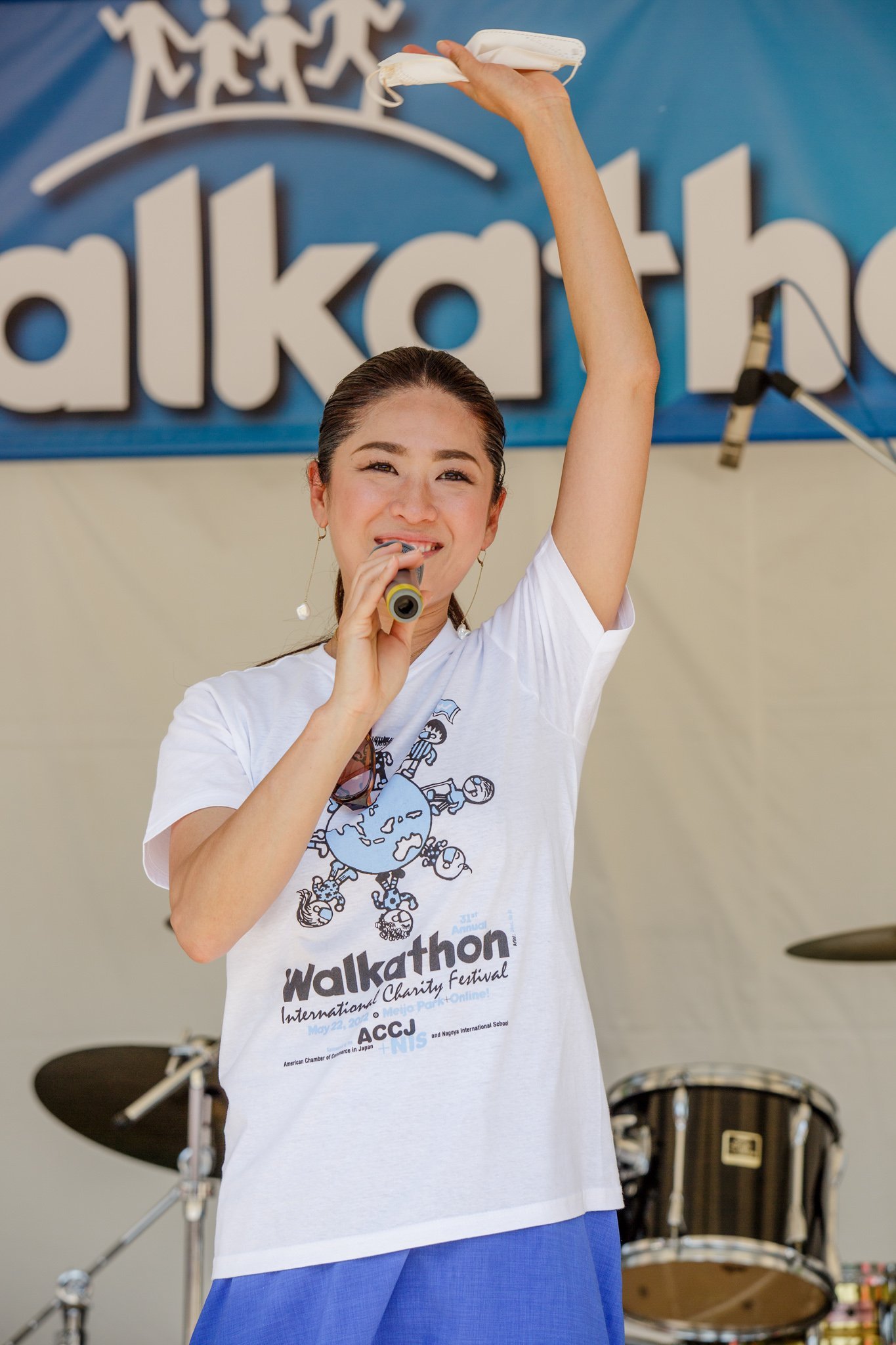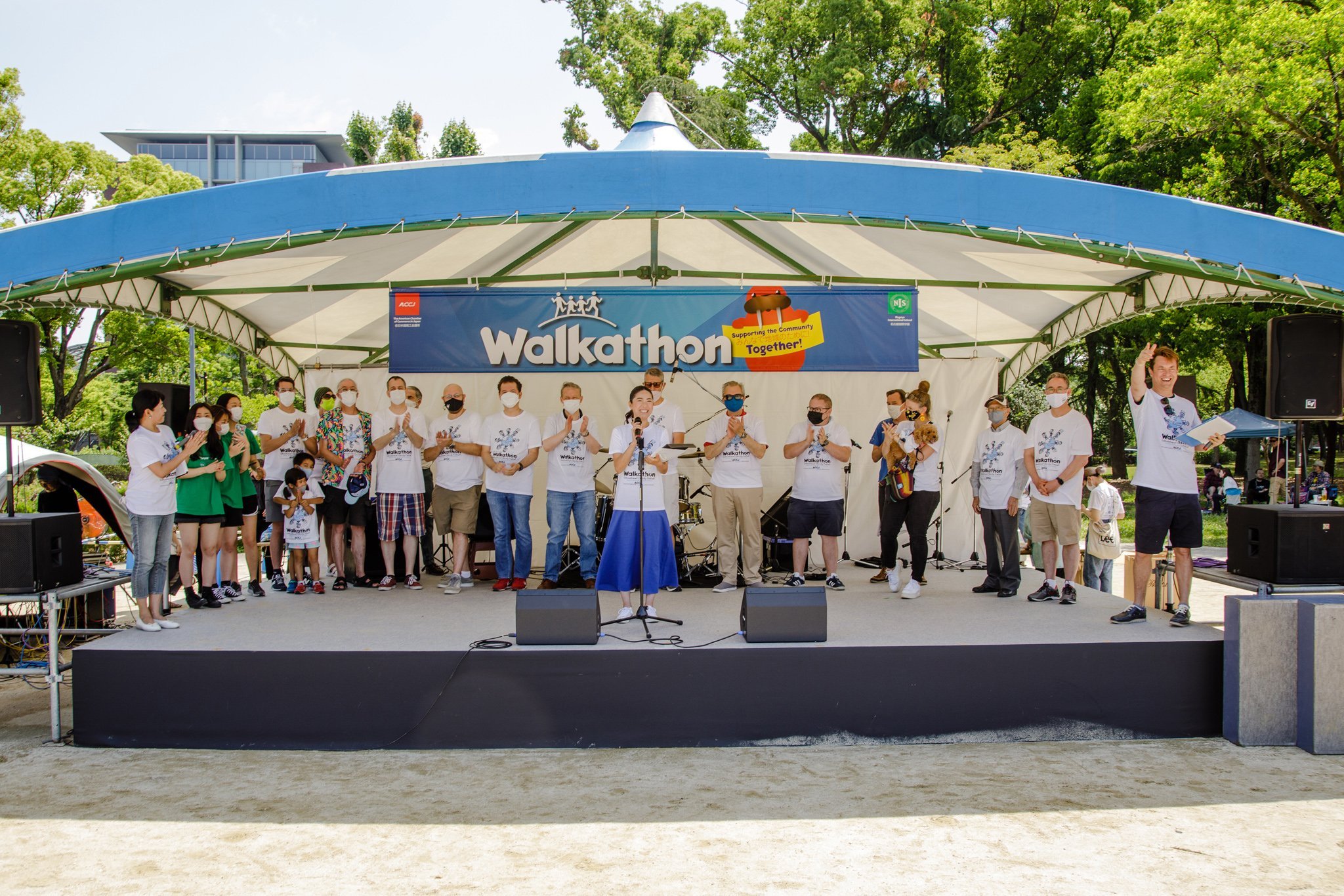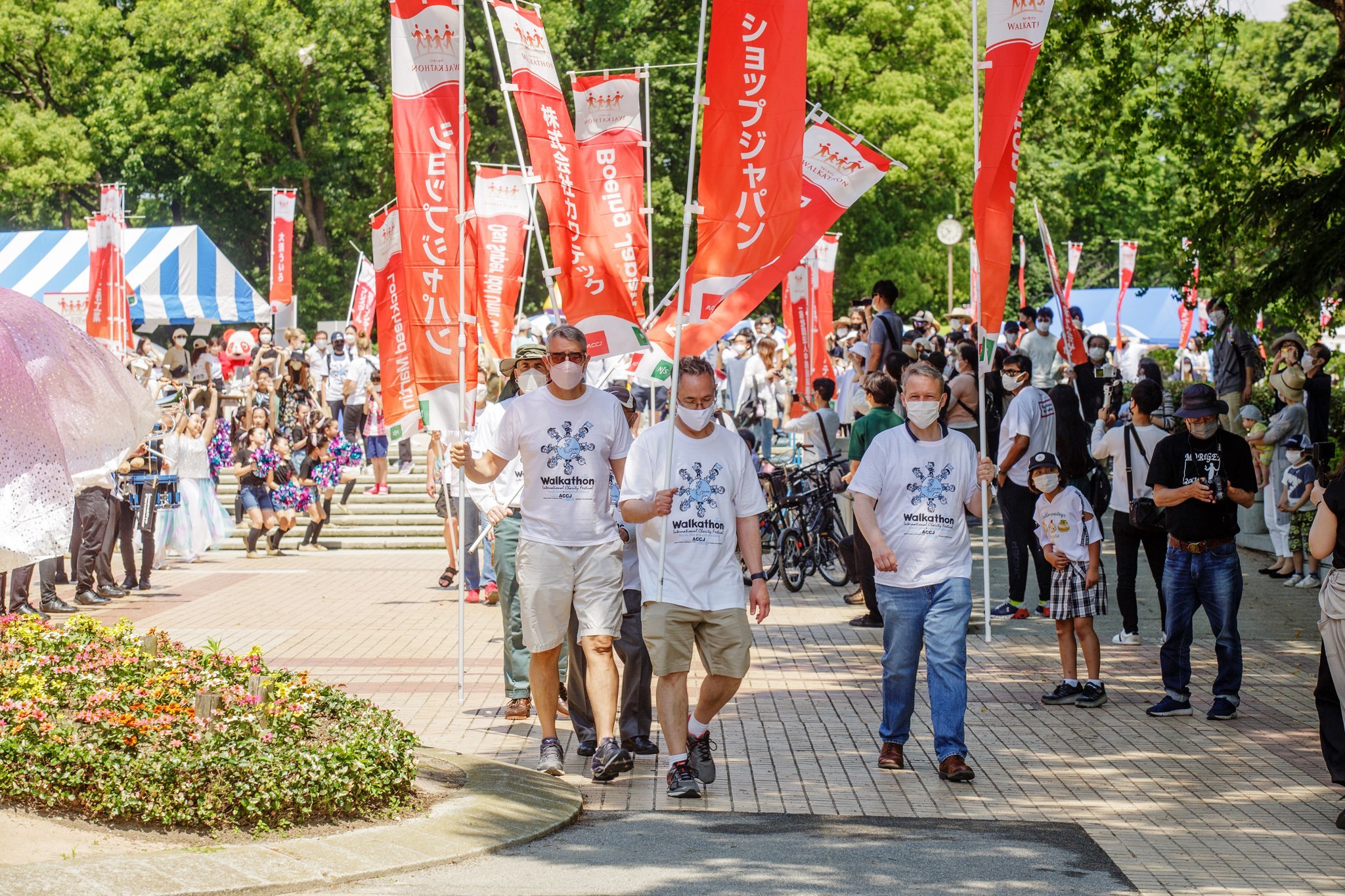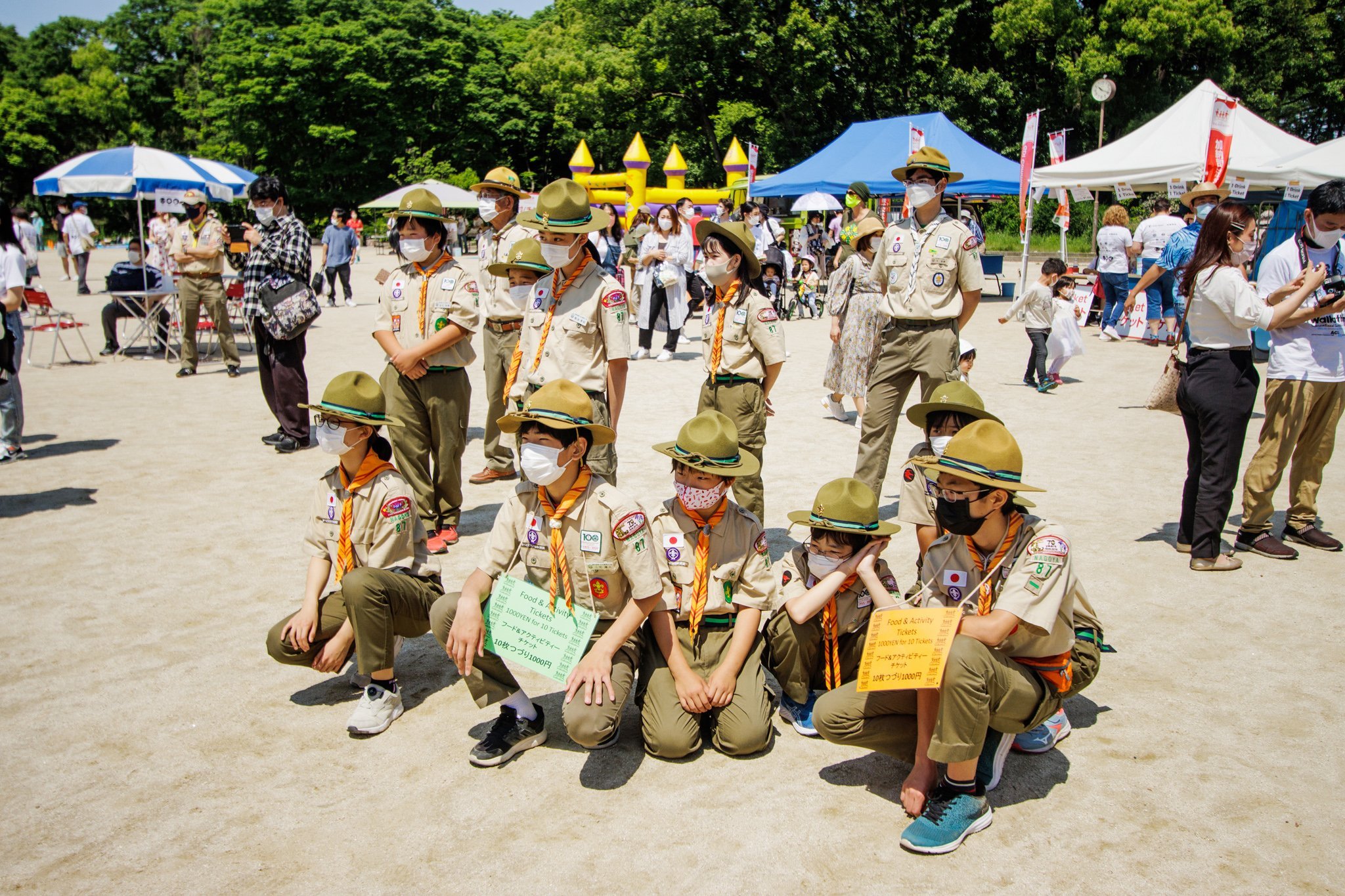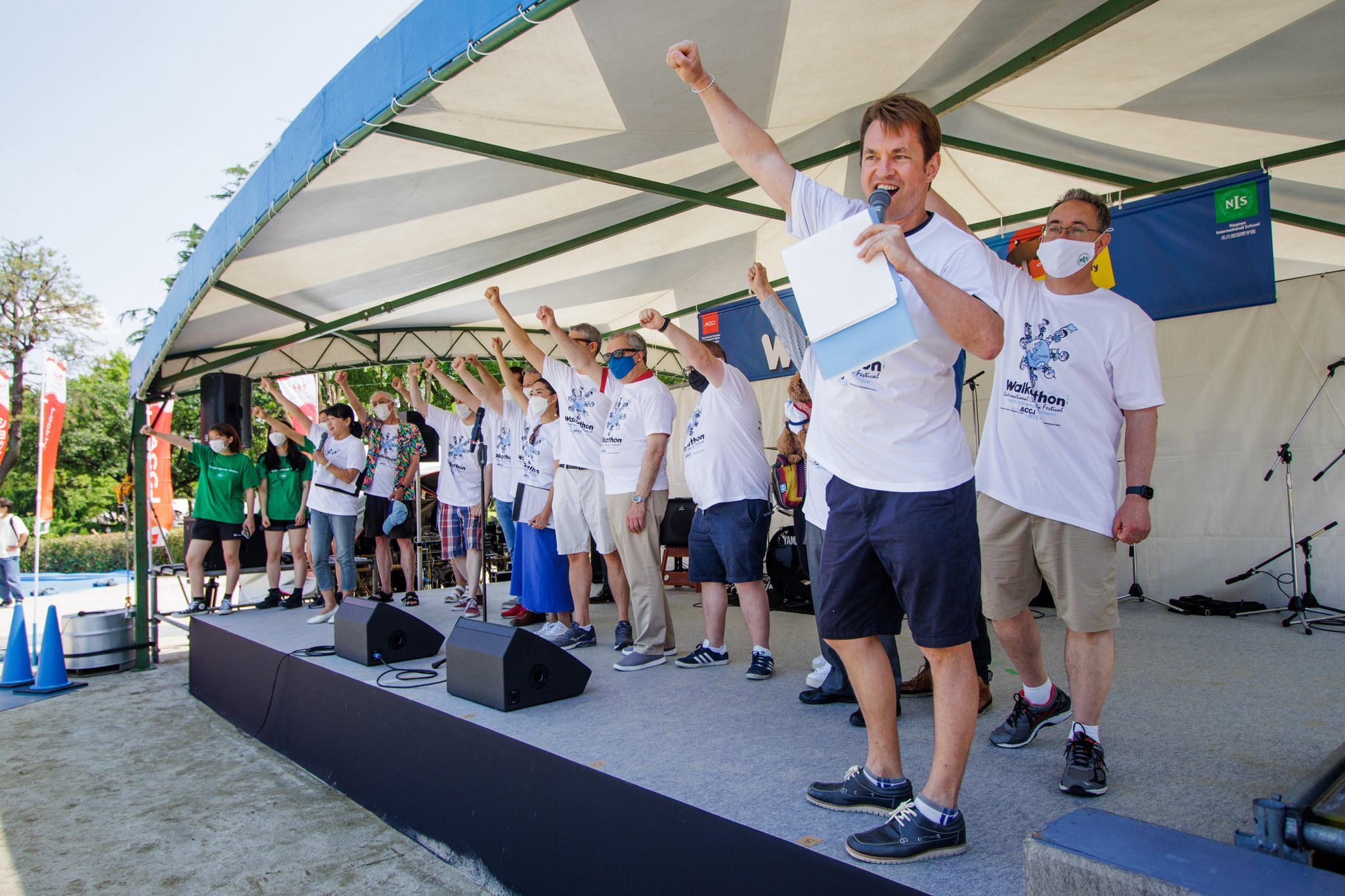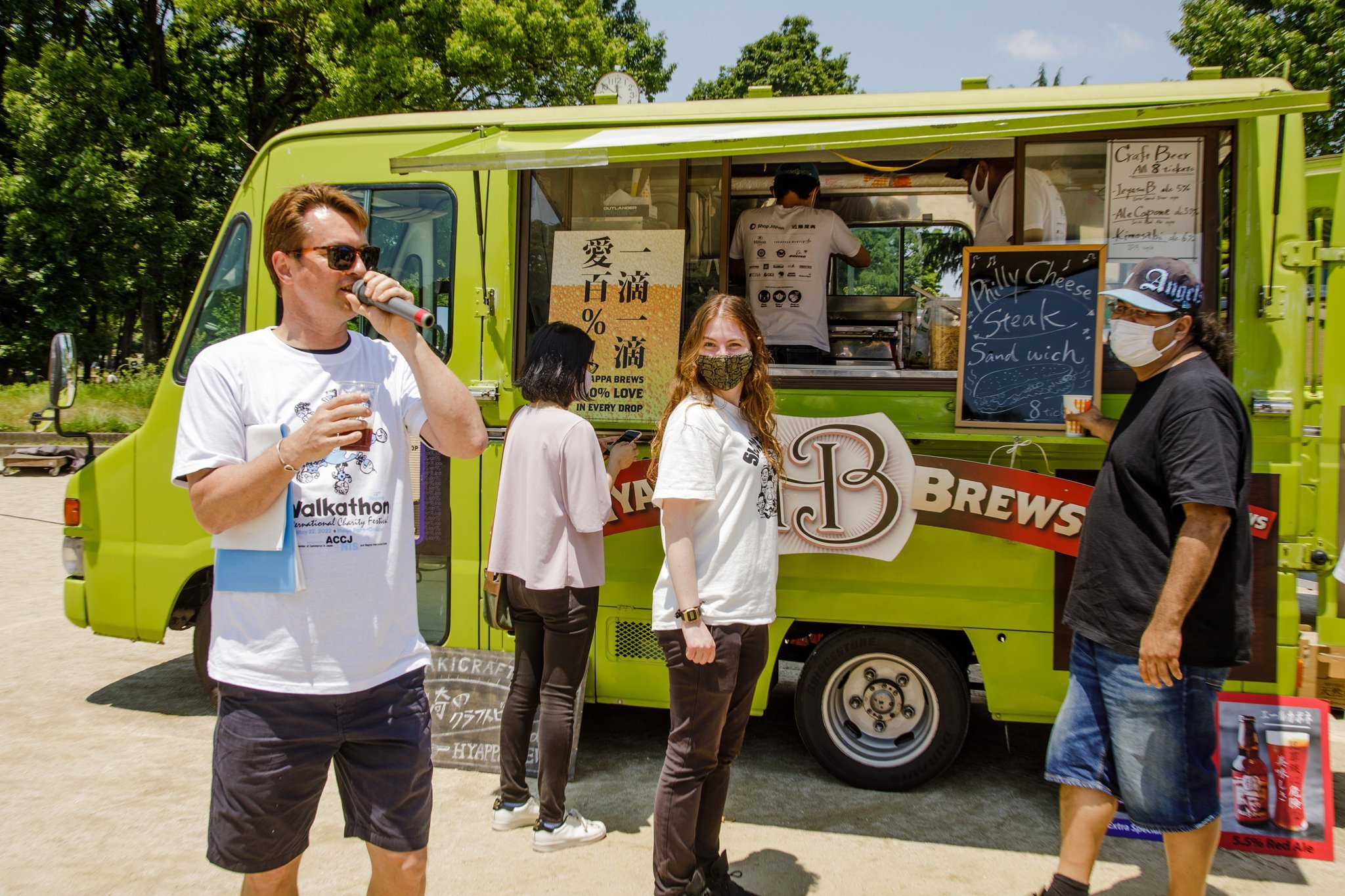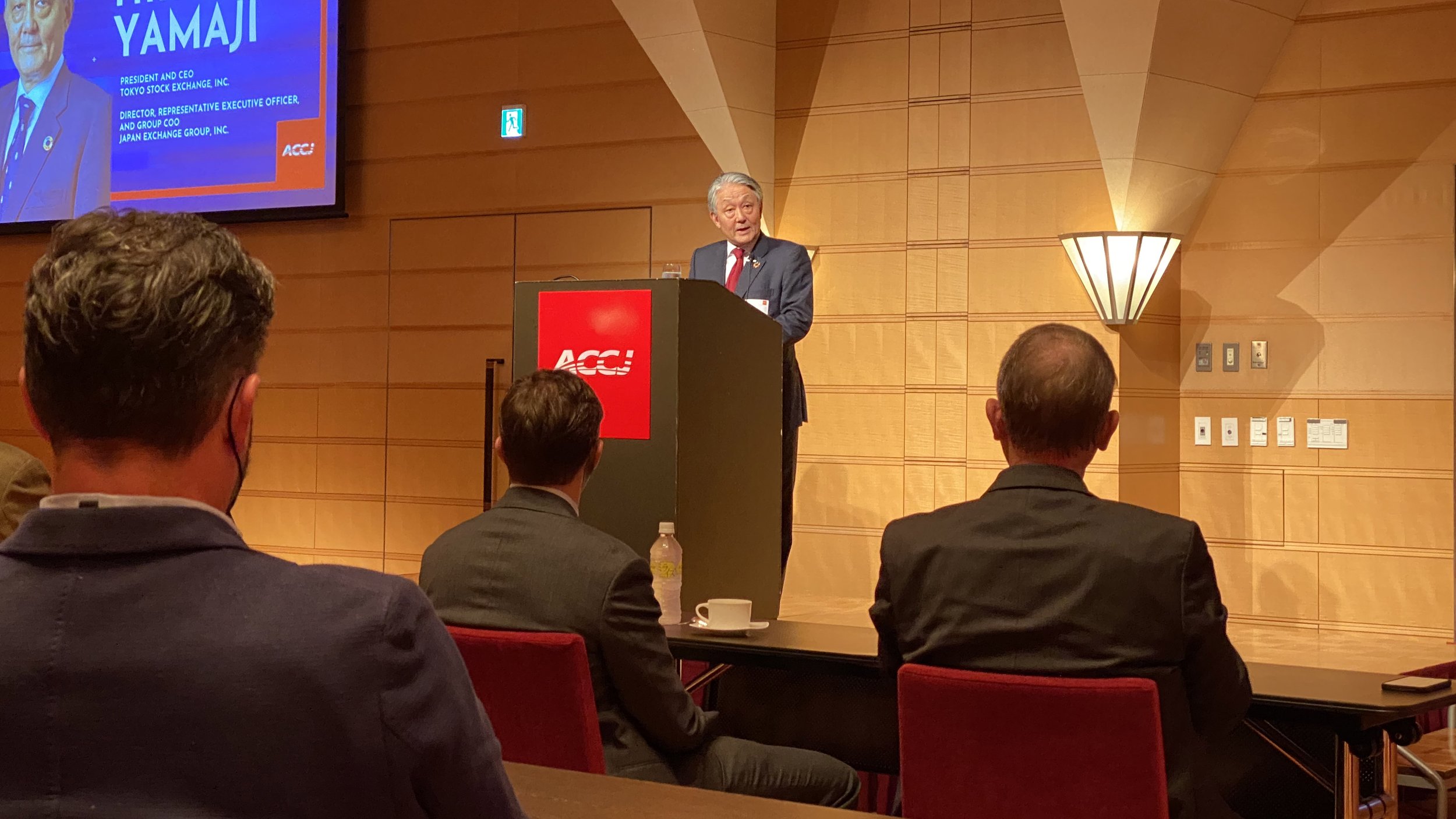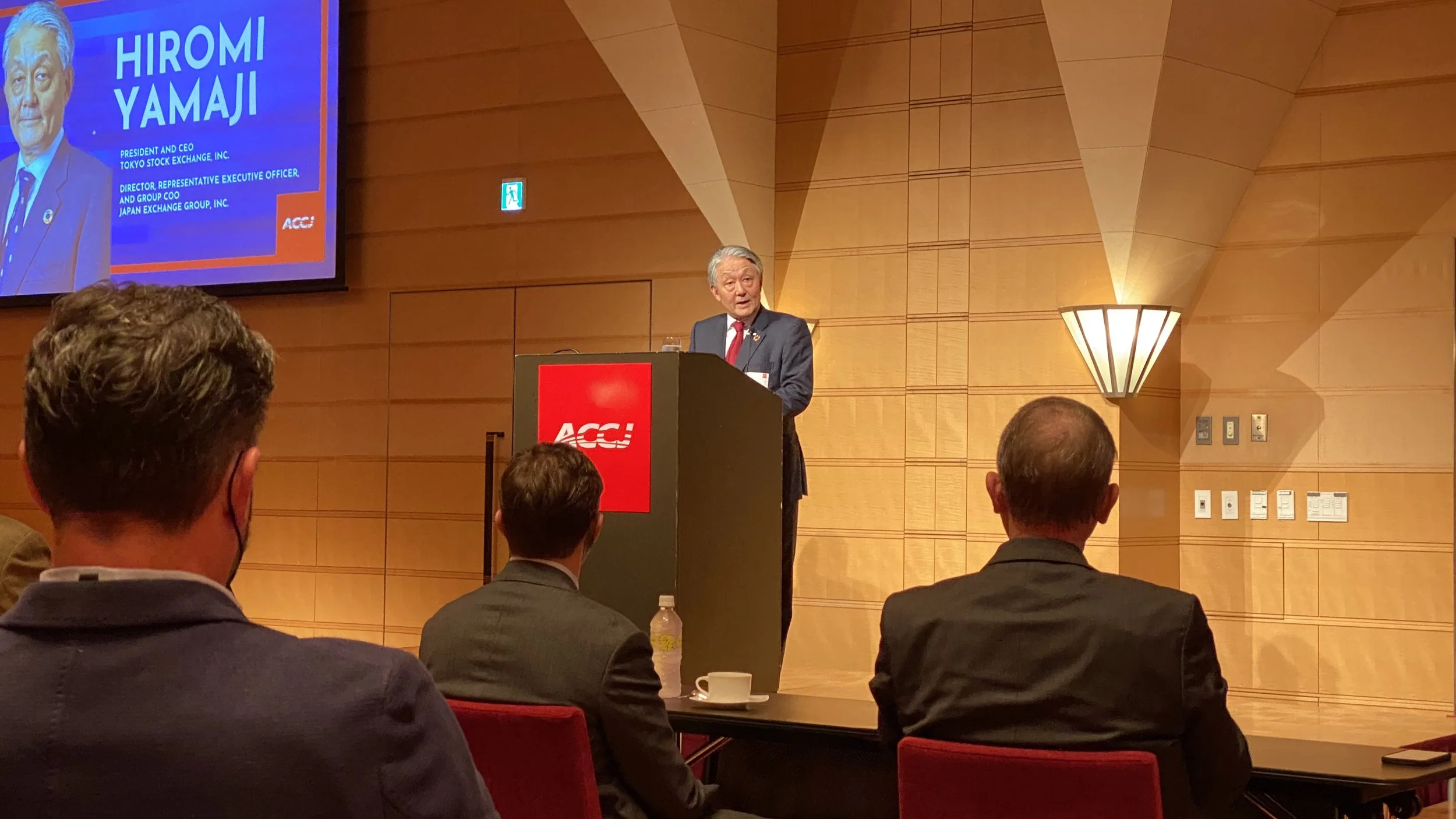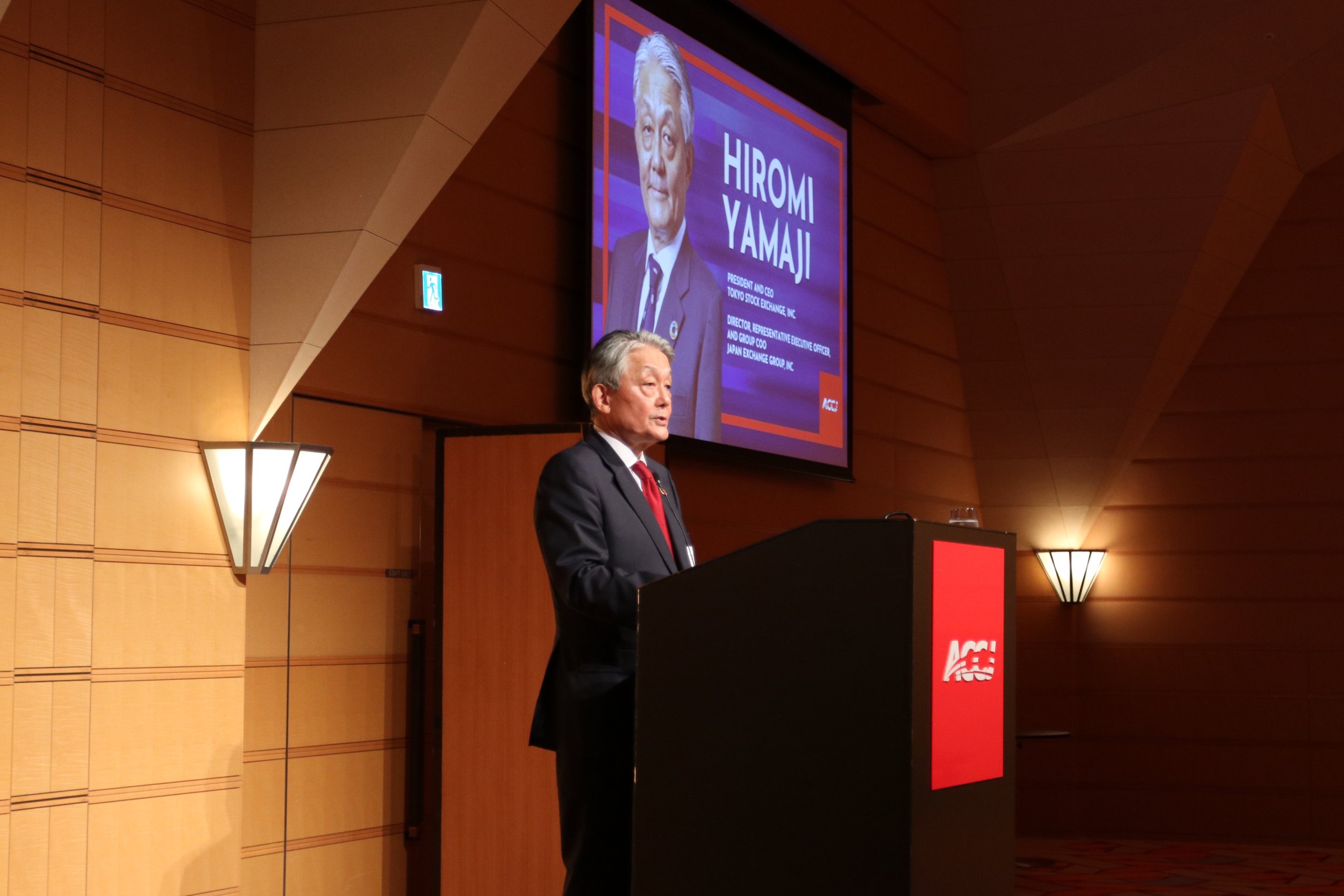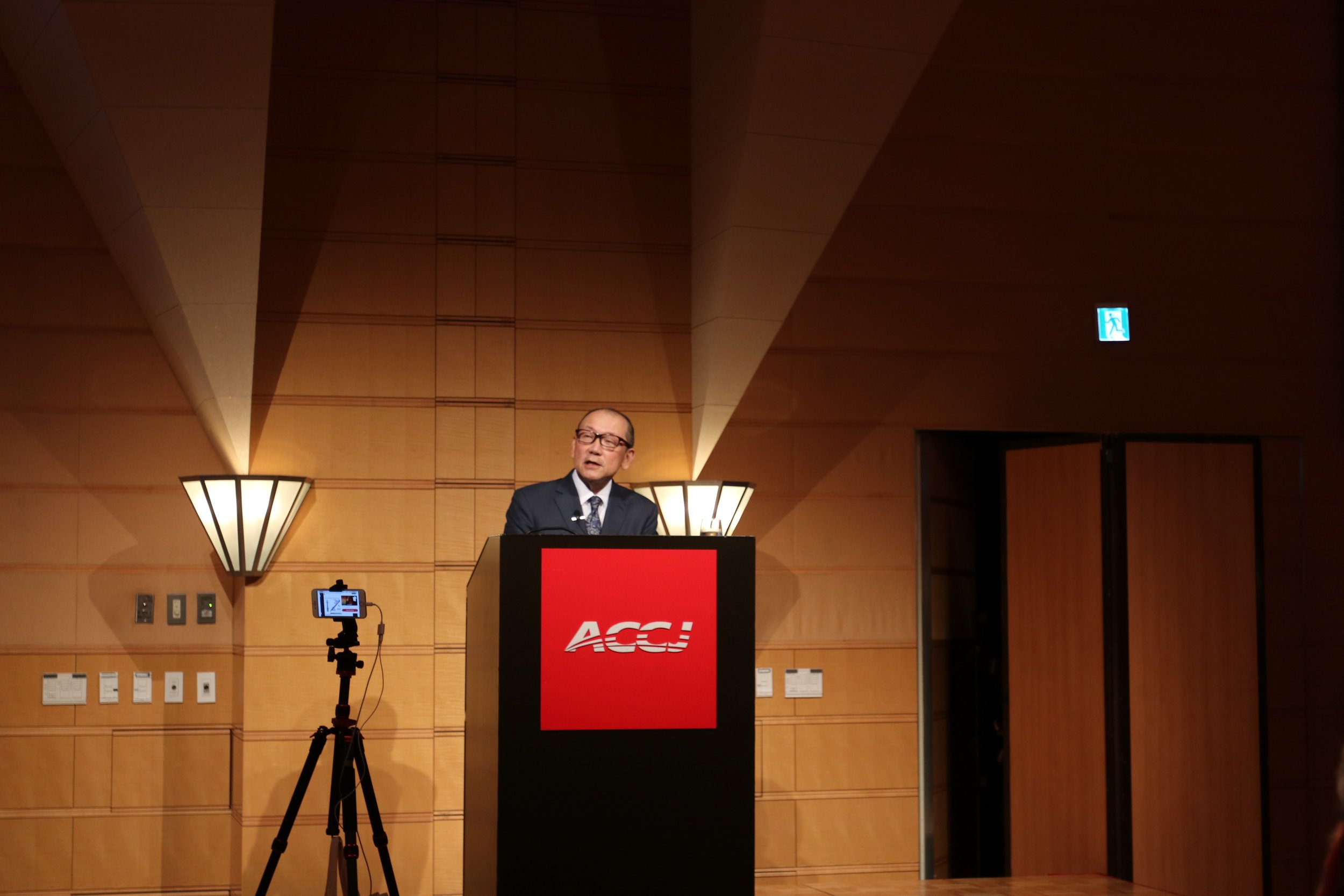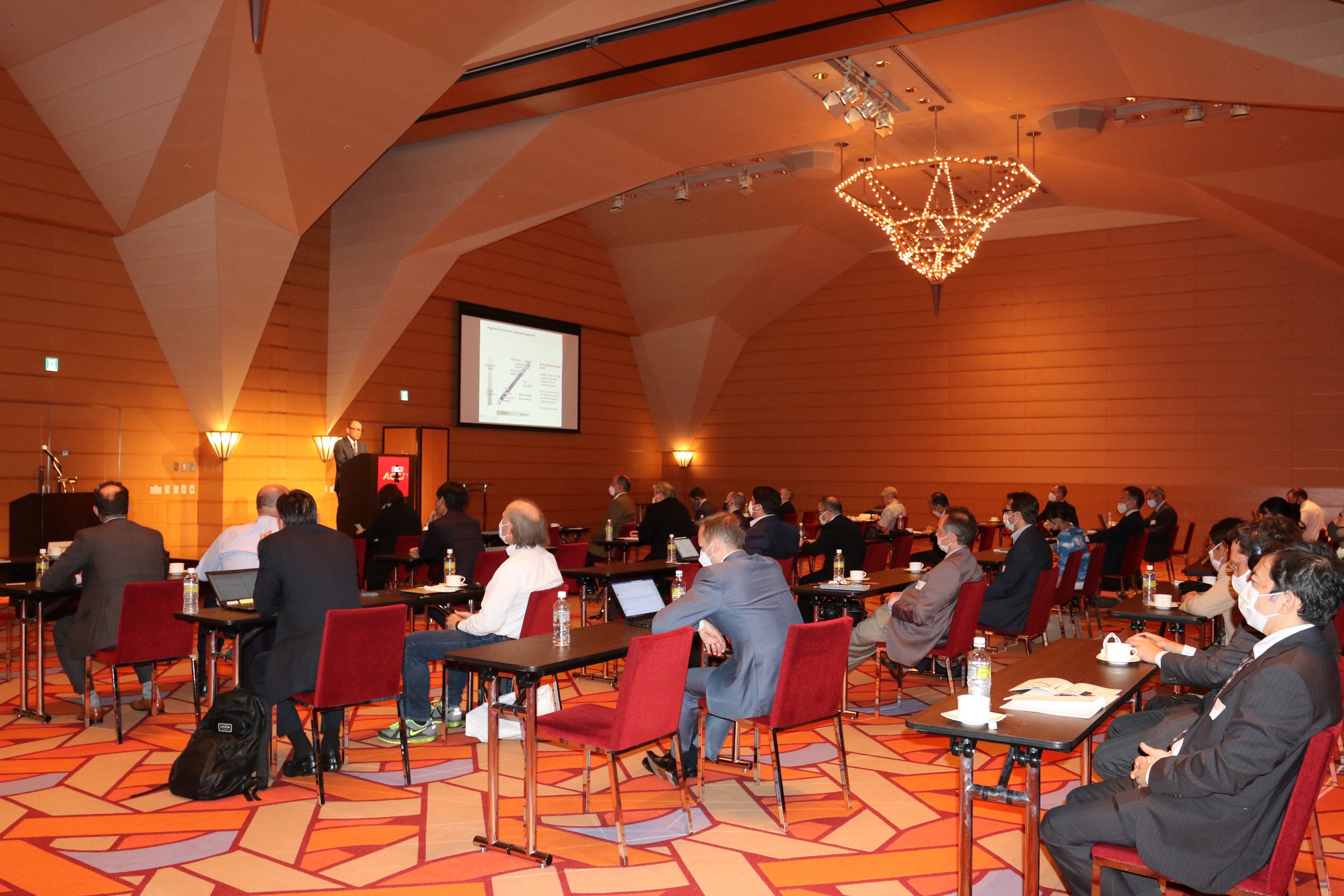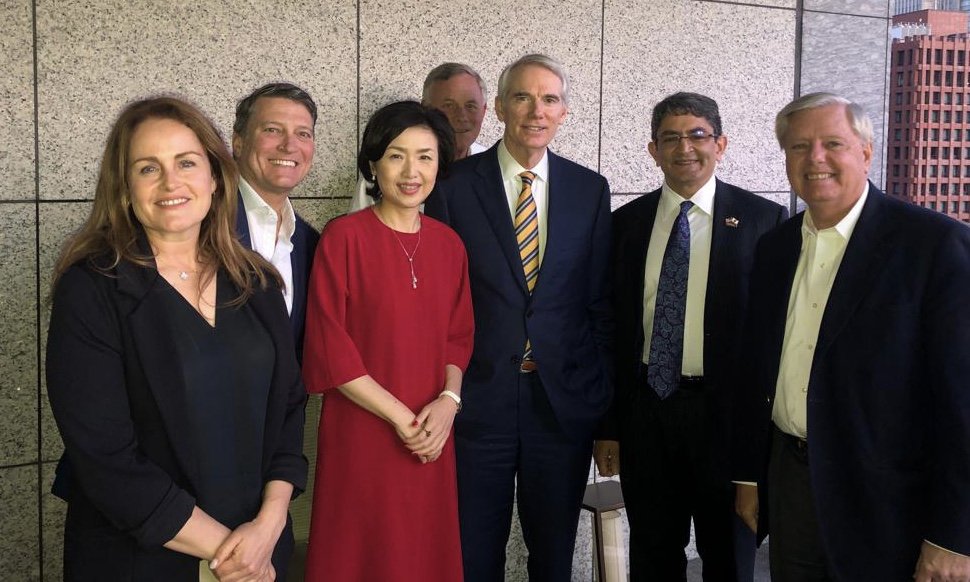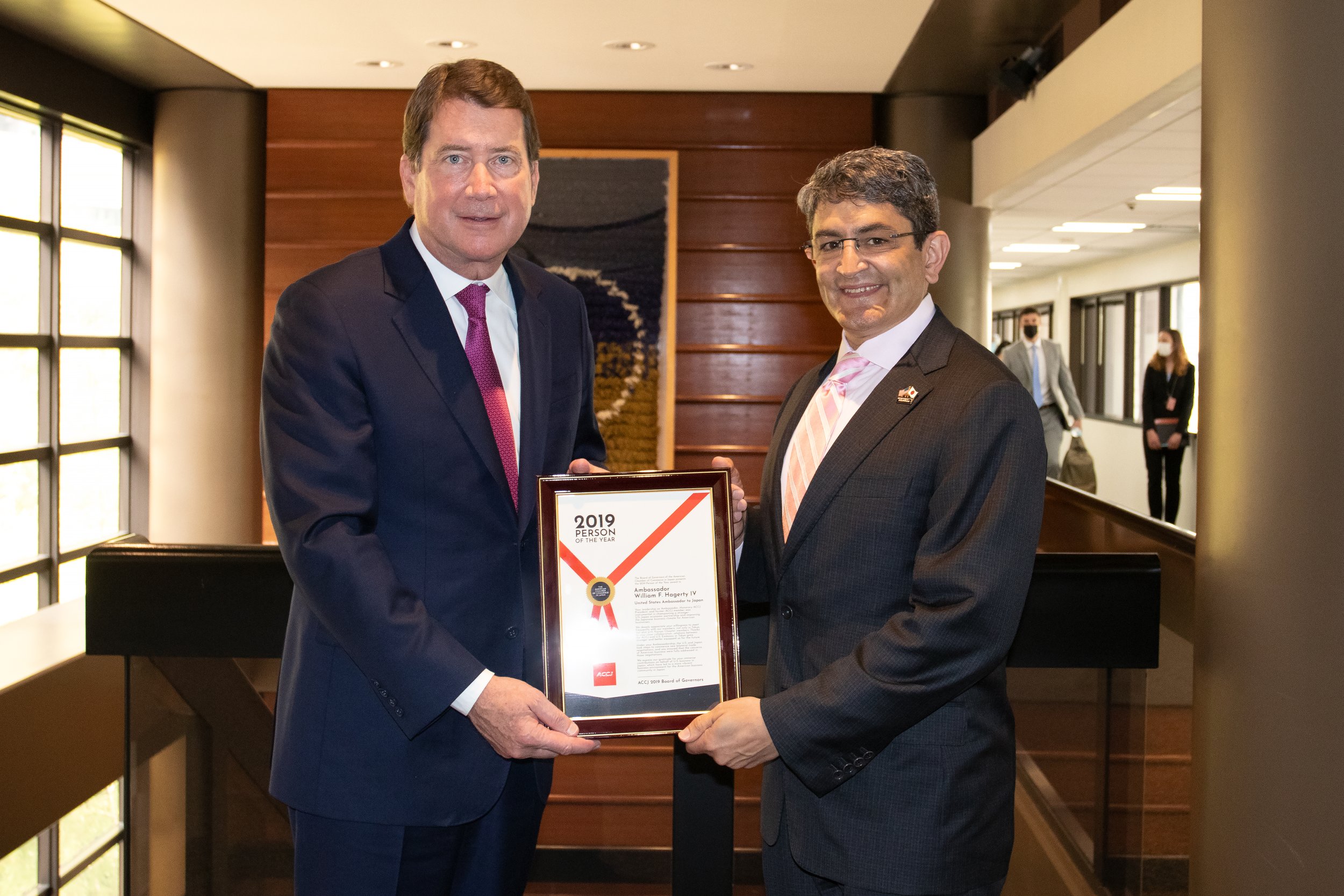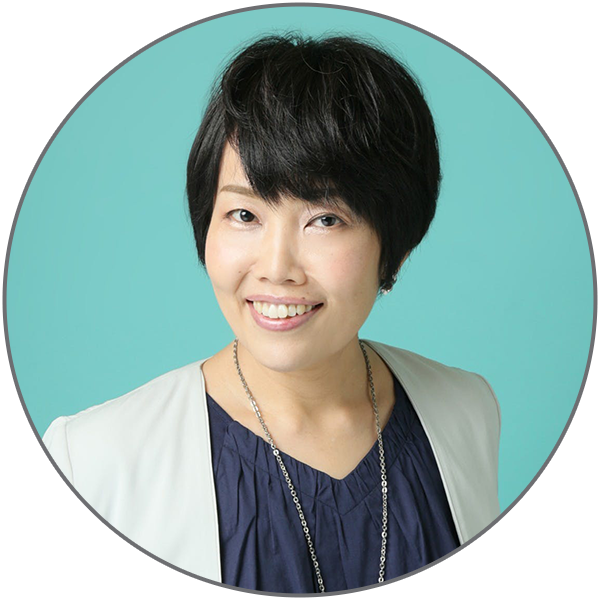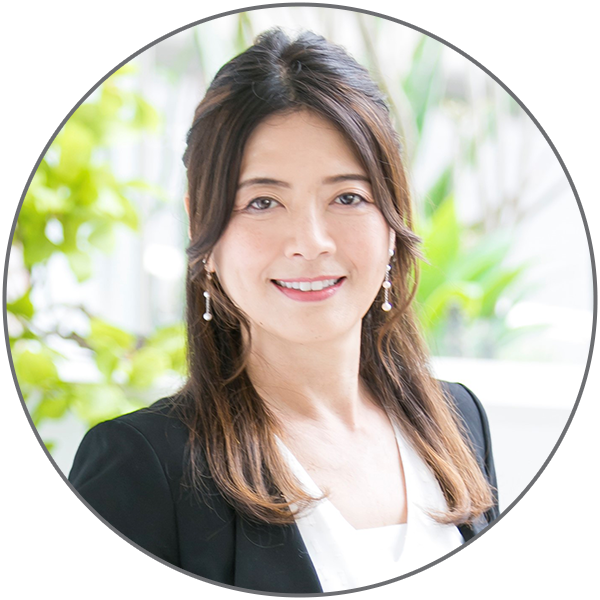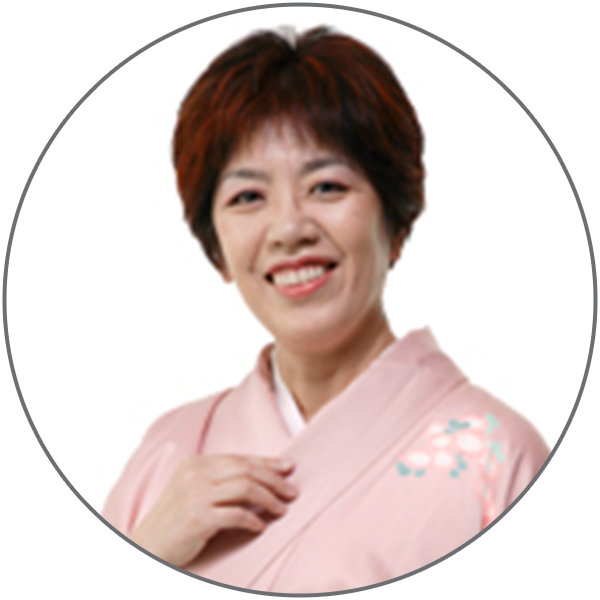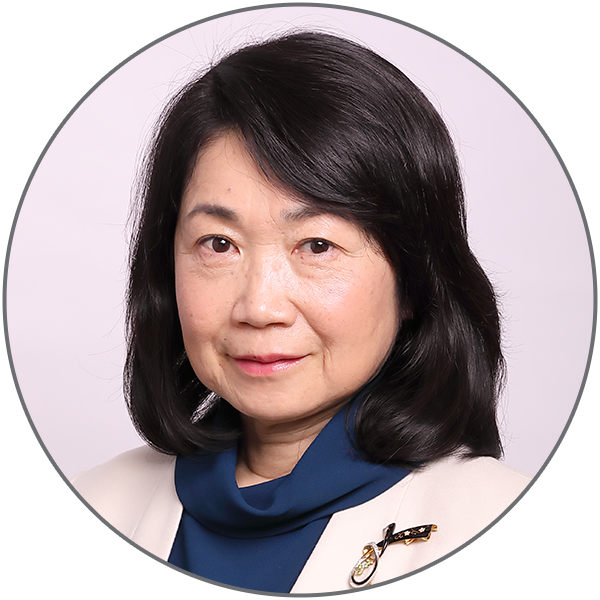2023 DC Doorknock
During the first full DC Doorknock since 2019, ACCJ delegates met with leaders in Washington, DC, to discuss security, economic, and strategic partnerships.
The 2023 ACCJ DC Doorknock delegates gather in front of the US Capitol.
On September 12 and 13, American Chamber of Commerce in Japan (ACCJ) leaders made their first full visit to Washington, DC, since the start of the coronavirus pandemic. These DC Doorknock visits are an important part of the ACCJ’s advocacy efforts and strengthen US–Japan relations.
ACCJ President Om Prakash was joined by Vice Presidents Jason Hyland and Victor Osumi; Governors Hans Klemm, Frank Packard, and Will Shaffer; Treasurer Steven Briggs; Special Adviser Christopher LaFleur; Digital Forum Vice-Chair Kristopher Tate; and Executive Director Laura Younger.
The delegation was warmly welcomed by administration officials, members of Congress, and officials from the Embassy of Japan and the US Chamber of Commerce. Topics of discussion included security, economic, and strategic partnerships.
The Bishop Family Memorial Scholarship Fund
On June 12, the ACCJ and the United States–Japan Bridging Foundation gathered at Tokyo American Club to honor the family and launch the Bishop Family Memorial Scholarship Fund at an event entitled Lives Lived for Bridging the United States and Japan.
Honoring the legacy of ACCJ leader Bill Bishop and his family through education
As a typhoon slammed Yokota Air Base in July 1974, a plane rocked its way down to the runway. Onboard was navy photographer Bill Bishop. That first night, he also experienced his first earthquake. It was a dramatic start to a five-decade relationship with Japan that would lead the South Dakota native to become a key part of the US business community in the country.
Last December, on Christmas morning, Bishop, his wife Izumi, and their daughter Sophianna lost their lives, killed by their neighbor at their family home in Saitama Prefecture.
Members of the American Chamber of Commerce in Japan (ACCJ) remember Bishop for his kindness, humor, friendship, and dedication to the chamber, where he served as chair, vice-chair, and board liaison of the Healthcare Committee over the years.
On June 12, the ACCJ and the United States–Japan Bridging Foundation gathered at Tokyo American Club to honor the family and launch the Bishop Family Memorial Scholarship Fund at an event entitled Lives Lived for Bridging the United States and Japan.
In attendance were US Ambassador to Japan Rahm Emanuel, representatives of Tochigi Prefecture Governor Tomikazu Fukuda, and ACCJ members and guests.
“We hope creating a fund that will support students who will come from the US to study in Japan, at Temple University, will be an incredible way to support Bill and his family’s legacy.”
Tom Mason, the foundation’s executive director, said, “We hope creating a fund that will support students who will come from the US to study in Japan, at Temple University, will be an incredible way to support Bill and his family’s legacy.”
Bishop studied in Japan himself and received a bachelor of arts degree from Sophia University. He earned a master’s degree from Temple University in Philadelphia, and later became a lecturer and board member at the Japan campus.
The event also marked the 25th anniversary of the United States–Japan Bridging Foundation, which provides US undergraduates—especially those from historically underrepresented communities—with scholarships to study abroad in Japan. It also offers mentorship and networking opportunities to build a Japan-related career, fostering the next generation of US leaders with connections to the bilateral relationship. Since its founding in 1998, the group has supported more than 2,000 students.
Some of this year’s Bridging Scholars, as well as alumni, also joined the event to share their experiences studying in Japan thanks to the foundation’s support.
The Bishop Family Memorial Scholarship Fund will be based at, and managed by, the US–Japan Bridging Foundation, which will administer and manage the scholarship and its programs—including the recruitment of students. Logistics, fundraising, and community support will be provided by the ACCJ.
Education Committee Vice-Chair Thierry Porte, who is also chairman of the United States–Japan Bridging Foundation, is happy to be a part of this.
“I knew Bill Bishop well,” he told The ACCJ Journal. “He and I worked together in the late 1990s to early 2000s at the ACCJ, and he was an active member of the American community in Japan. As [he was] someone who was very active working with students, there was quite a bit of movement in the community to remember Bill and his family.”
Porte said the Bishop Family Memorial Scholarship Fund will be a “living memorial to Bill, his wife, and his daughter and the logical place to collaborate would be the ACCJ, where Bill was very active and his daughter interned.”
Surf the DX Wave
A digital transformation (DX) wave is sweeping across Japan, but learning to surf that wave takes experience. Another group of islands that know a bit about surfing, and have ridden DX to their advantage, could be a guide.
Five big lessons for Japan from Hawaii
As Japan’s fledgling Digital Agency finds its way through its second year of existence, and the Tokyo Metropolitan Government’s new start-up strategy takes hold, a digital transformation (DX) wave is sweeping across the country. Learning to surf that wave takes experience, however, and another group of islands that know a bit about surfing, and have ridden DX to their advantage, could be a guide for Japan.
How the Hawaiian tourism industry found renewed life through digital transformation was the subject of a February 28 event held at Tokyo American Club and online, and entitled How to Surf the DX Wave: Five Big Lessons for Japan from Hawaii. The American Chamber of Commerce in Japan Tourism and Hospitality Committee luncheon—co-hosted by the Digital Transformation and the Information, Communications, and Technology Committees—welcomed Mayumi Nakamura and Mike Birt of Ascent Partners, LLC to discuss the restructuring of Hawaii’s tourism management system.
When the Covid-19 pandemic forced a total shutdown of travel, tourism hot spots such as Honolulu, which had welcomed a record 10.4 million visitors in 2019, went from overtourism to dead empty in just a few days. The islands fell quiet. And when tourism returned in 2021, it was not the same.
Recovering from Wipeout
“As people started coming back, the domestic travel industry was just a madhouse,” Birt explained. It was clear that the pandemic had left Hawaii’s tourism industry scarred and unprepared for the influx. Change was needed.
The seeds for change were planted even earlier. When heavy storms hit Haena State Park, on the island of Kauai, in April 2018, major access roads were shut down and neither tourists nor locals could enter.
It was a needed pause, however. Before the disaster, some 3,000 tourists had visited daily, leaving little room for Hawaiians. “There was some conflict there, and many people couldn’t enjoy their own homeland,” Nakamura explained.
While the storm was a multi-million-dollar disaster for many, others saw it as divine intervention, an opportunity to reappraise the management of state parks and give greater consideration to the balance of tourists and locals.
When the decision was made to transform the system, the Hawaiian government approached Ascent Partners for help. Nakamura led a team that designed a timed-entry reservation system. Entry was restricted to those with reservations, and daily tourist admission was capped. This allowed locals more opportunities to enjoy their own land. Greater emphasis was also placed on hiking the trails and evoking the experience of the natural land as the Native Hawaiians saw it.
Due to the pandemic, all the work had to be done remotely. The Hawaii project was run from Seattle, while the software development team was in India and various support staff were scattered across the US mainland.
The project was a great success. Not only were there societal benefits, but economic ones as well. The state brought in 250 percent of its projected tourism revenue in the first year.
The island of Kauai, home to Haena State Park
Model for DX
Birt believes the fact that this project could be carried out remotely with such great success shows the potential for adapting the approach to other countries, with each following their own philosophy of reimagining post-pandemic tourism.
“It became a model for how to scale and develop very effective software digital transformation projects that can literally span the world,” he explained. “Destination management is a key element—and this isn’t just Hawaii. Venice, Iceland, Amsterdam … there are a number of [places] that have really had to work on how to manage their destination so that it doesn’t become overrun, and the community can still enjoy where they live.”
“It became a model for how to scale and develop very effective software digital transformation projects that can literally span the world.”
Birt and Nakamura said they learned a lot during their three years working with the Hawaiian state government. They shared five lessons which they believe Japan could put into action to transform its own post-pandemic tourism.
Lesson 1: DX requires leadership and vision
“Without a vision, none of the people around [you] can support the project. In the case of Hawaii, it was a return of aloha spirit,” Nakamura said. What made the project possible, she added, was that both the state government and private individuals were on board and committed to using the pandemic to take a bold step.
Lesson 2: DX has customers—and adversaries
“The state parks are literally part of [Hawaii’s] soul; Hawaiians think of their parks as almost a living thing,” Birt explained. Undertaking such a large-scale project, therefore, brought together many parties with a vested interest, whether emotional or financial.
Naturally, with this came those who strongly opposed the transformation. But nobody, Birt and Nakamura acknowledged, knowingly played the role of adversary; they resisted change simply for self-preservation. What saved the project from failure was that powerful friends in the Hawaiian state government shared the vision and supported it from the start.
Lesson 3: Technology is powerful
DX is not a simple one-and-done operation. It is an everyday effort that must be constantly analyzed and adjusted to fit the needs of the project. The DX wave does not stop or slow down. Everyone must be skilled and educated to properly participate in the journey. Questions must be constantly asked. In the case of the Hawaii project: Where are the tourists going? How are they going? How could communication be improved? What could smooth entrance into the parks?
Lesson 4: Expectations change
While the aloha spirit is the genuine treasure of Hawaii, it must always be met in balance with malama, the respect for the state and environment, as well as the customs and culture that come with it. You receive the generosity of Hawaii, but you are obliged to pay it back in appreciation. The same balance is sought in DX, where it has the potential to bring revenue and benefits, but we must be careful to not kill the goose that lays the golden eggs.
Lesson 5: DX waves won’t stop, learn to surf them
Lastly, there must be an emphasis on change, and an understanding that there is no final resting point in DX. Nakamura referred to the decline of Facebook and the rise of the artificial intelligence tool ChatGPT as examples of the unpredictable nature of technology. “You have to be ready to ride the waves as they comes,” she said. “Be adaptable, be adjustable. Don’t think of it as a destination, but as a journey.”
Winds of Change
After two years in virtual space, one of the largest annual events held by the ACCJ returned to its traditional in-person format on December 3, when chamber members and guests gathered at the Hilton Tokyo in Shinjuku for Chicago: An Evening in the Windy City.
First in-person Charity Ball since 2019 brings the ACCJ together
After two years in virtual space, one of the largest annual events held by the American Chamber of Commerce in Japan (ACCJ) returned to its traditional in-person format on December 3, when chamber members and guests gathered at the Hilton Tokyo in Shinjuku for Chicago: An Evening in the Windy City.
The first live Charity Ball since 2019 kept some virtual aspects of the pandemic galas to give the whole chamber community—across the Tokyo, Chubu, and Kansai chapters—the opportunity to participate.
The goal was to raise funds for charity while also bringing one of the ACCJ’s most important social events back to life, and the evening was a roaring success thanks to a great venue; spectacular entertainment, inspired food, wine, and spirits; and a special guest: Chicago’s own Rahm Emanuel, US ambassador to Japan.
The Charity Ball Committee, with the help of the amazing ACCJ staff, worked together to make this event happen. But it would not have been possible without the support of our generous sponsors, all those who attended, and the many people who participated online in our raffle and auction.
With everyone’s support, we raised ¥4.5 million for charities, making a big difference in our ability to help those in need.
The Charity Ball Committee cannot thank our sponsors and the ACCJ community enough for making the event a success. We are grateful to each and every person involved, and extend a huge thank you to all!
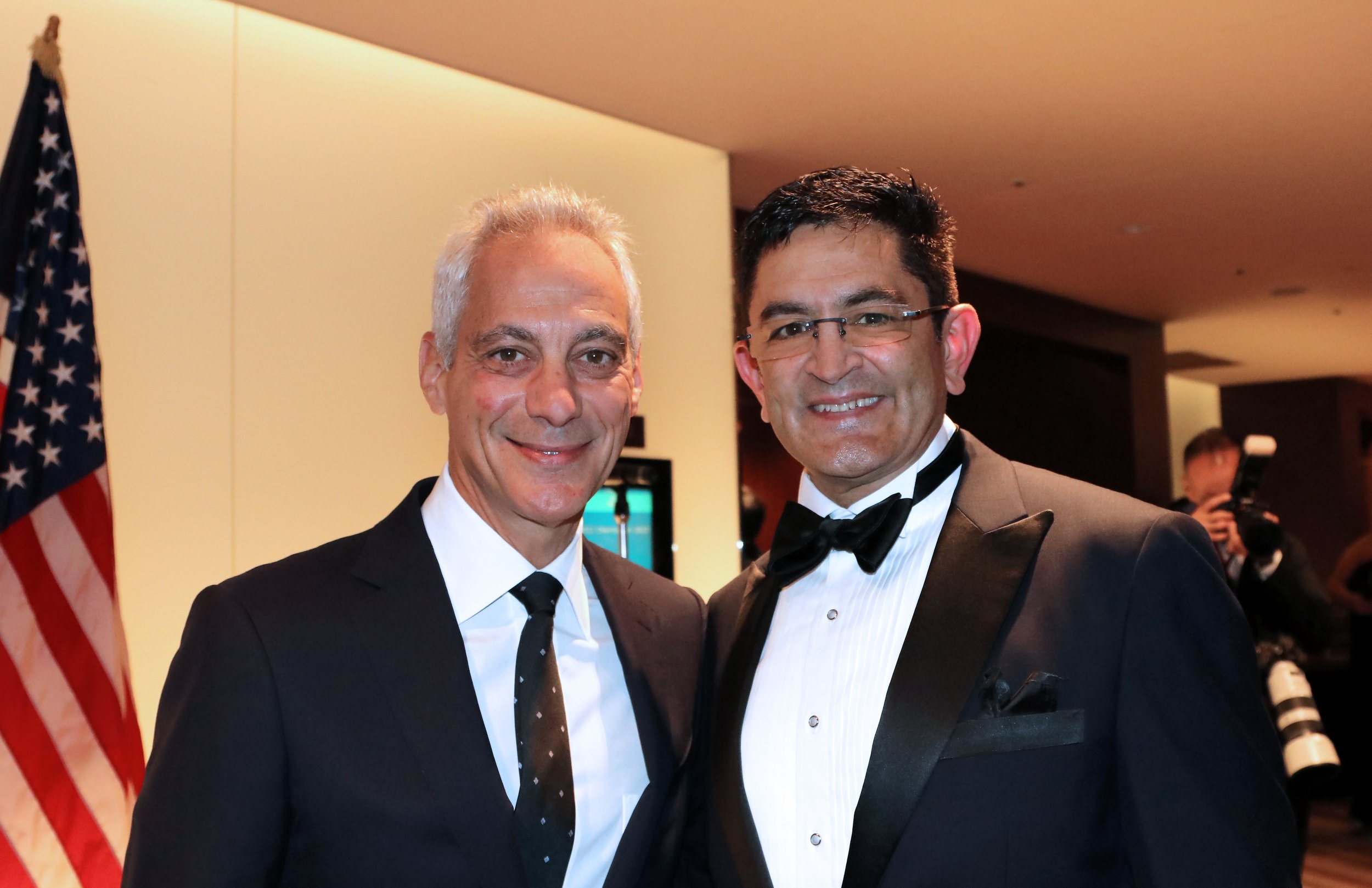
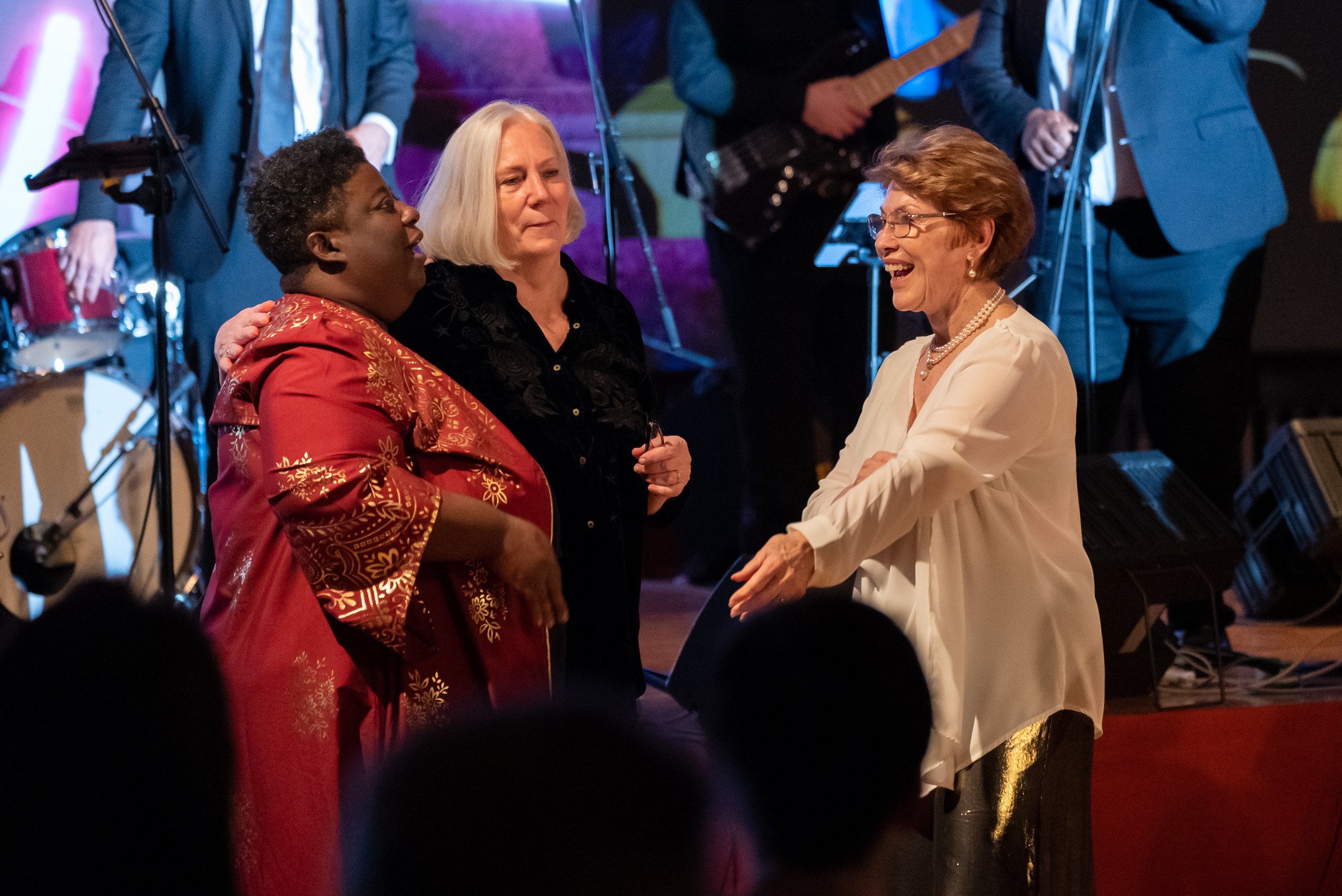

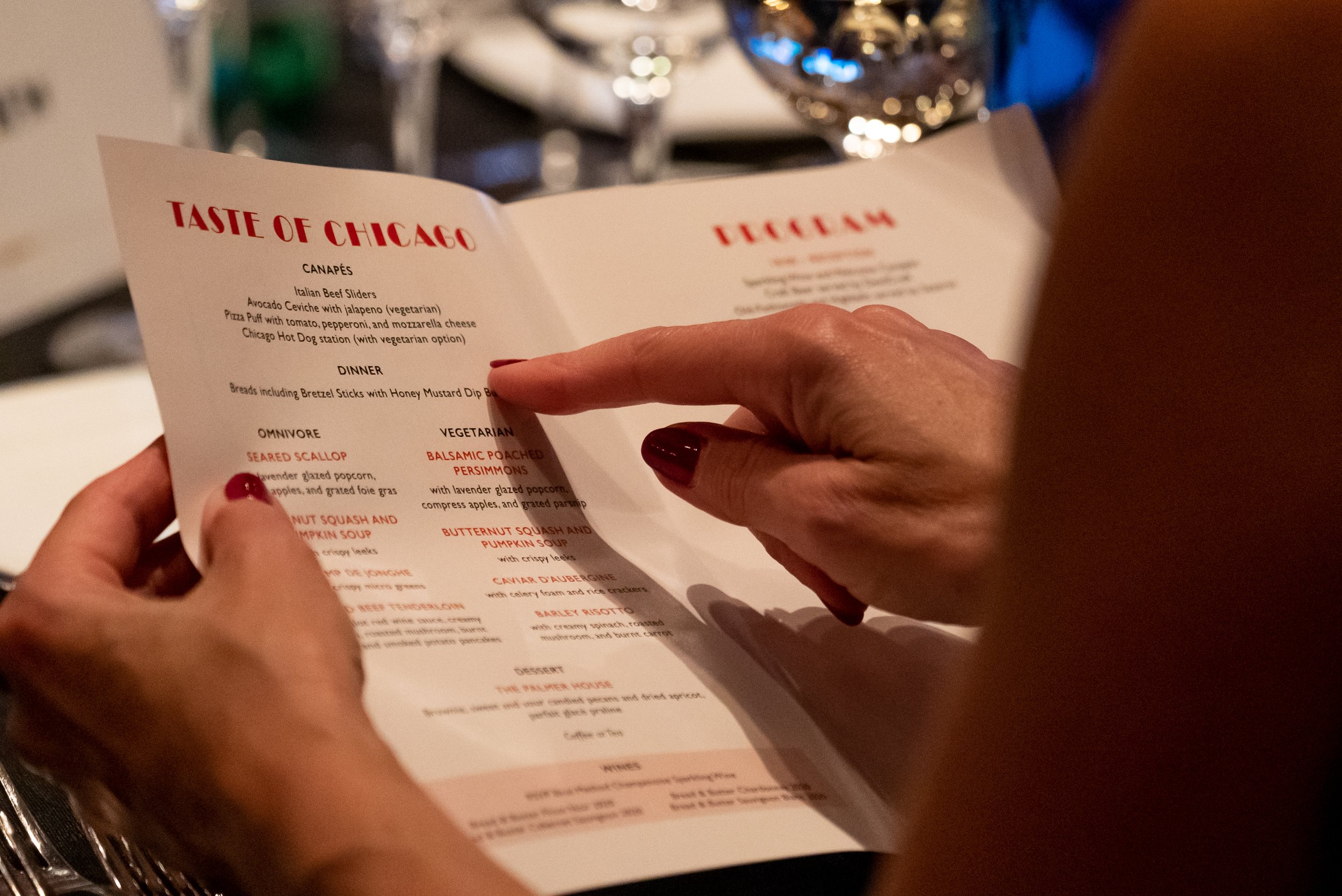
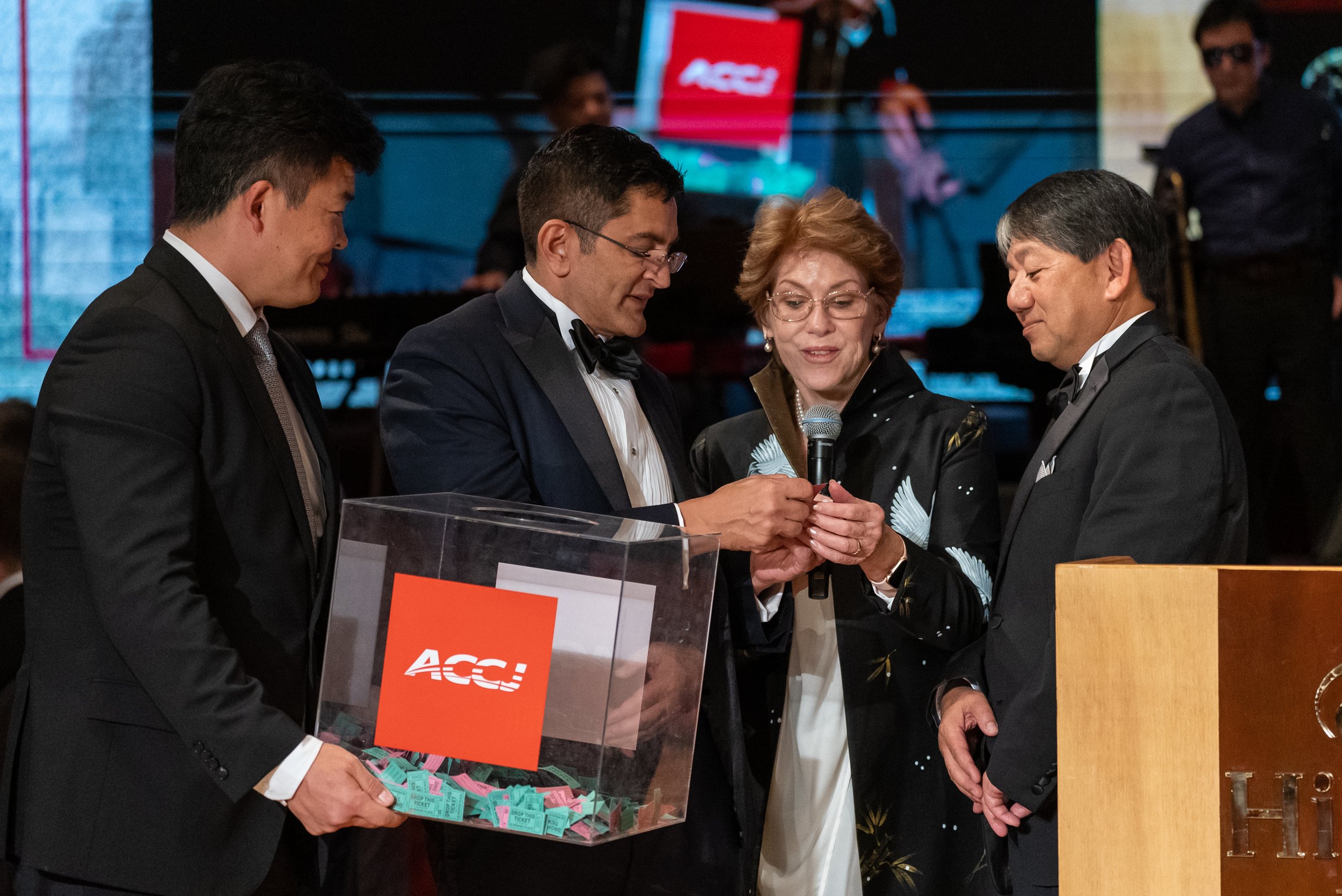
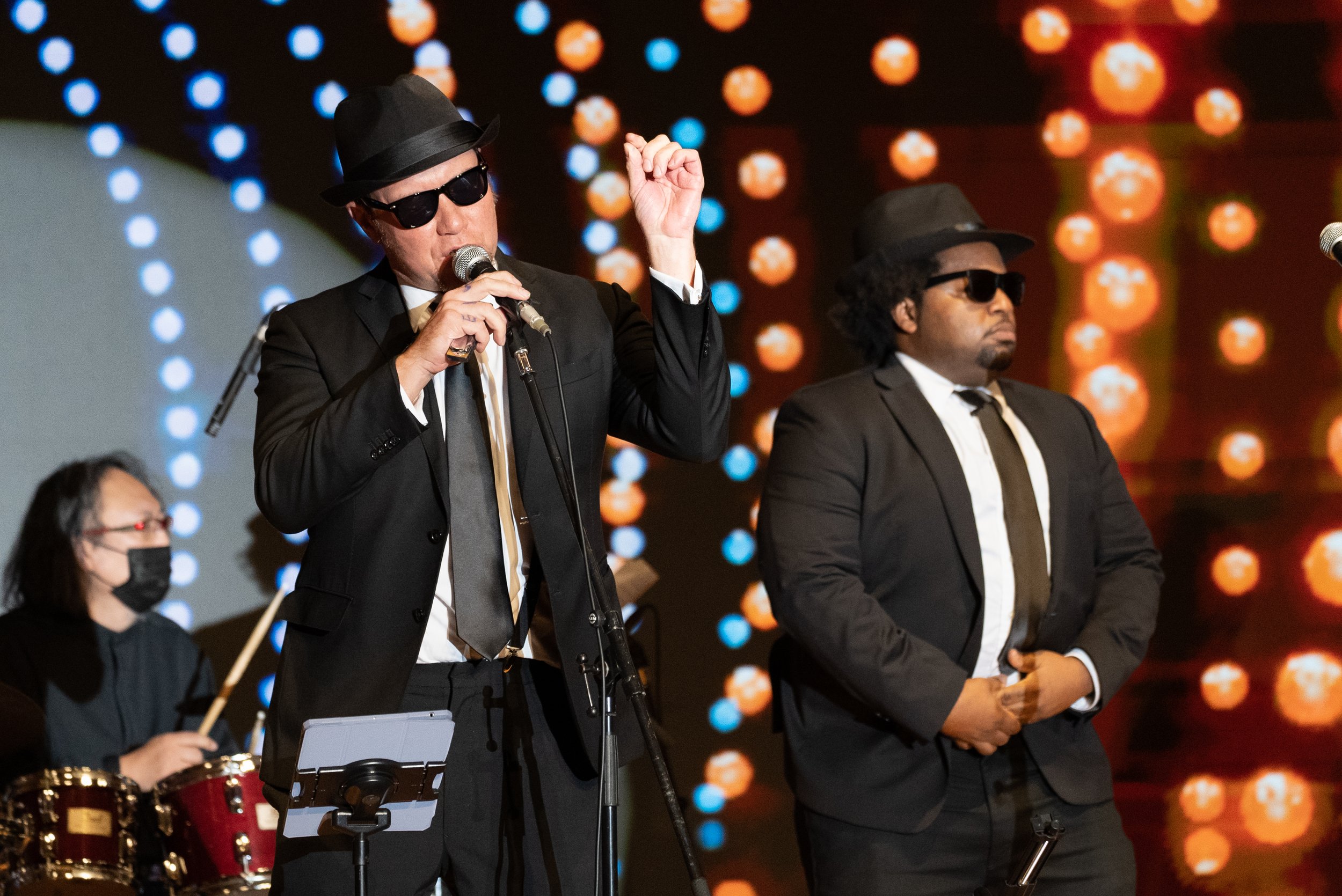
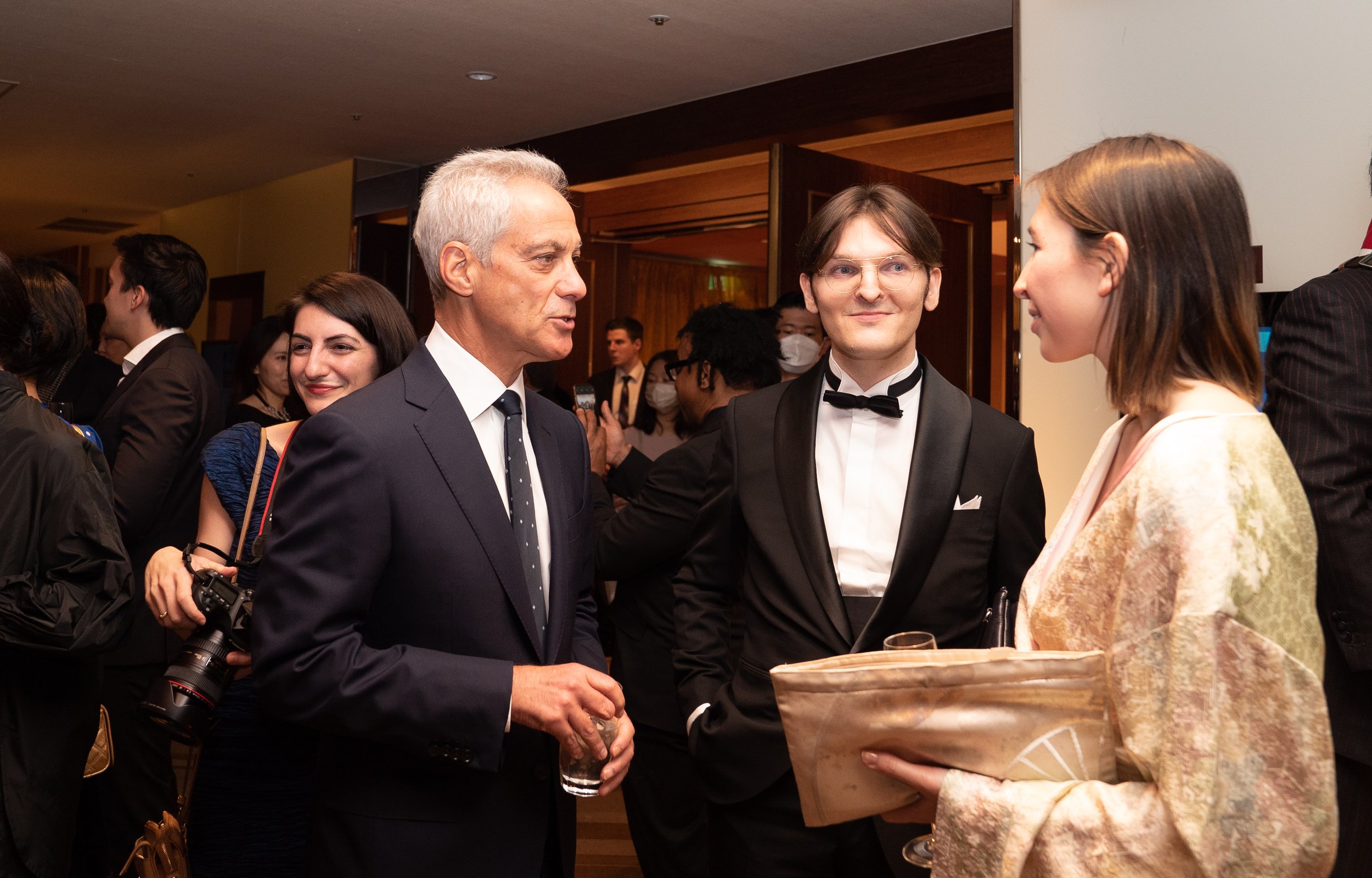

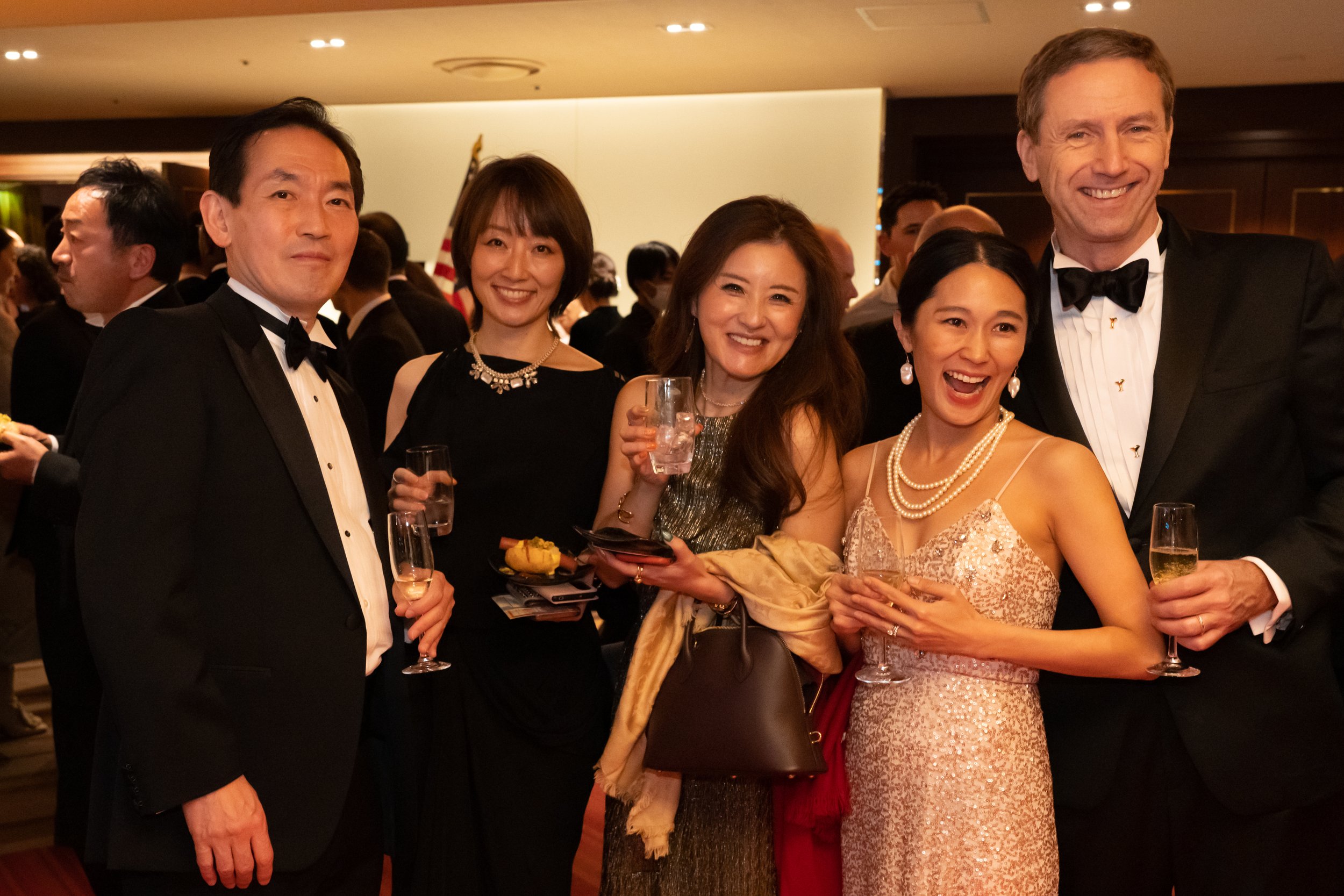

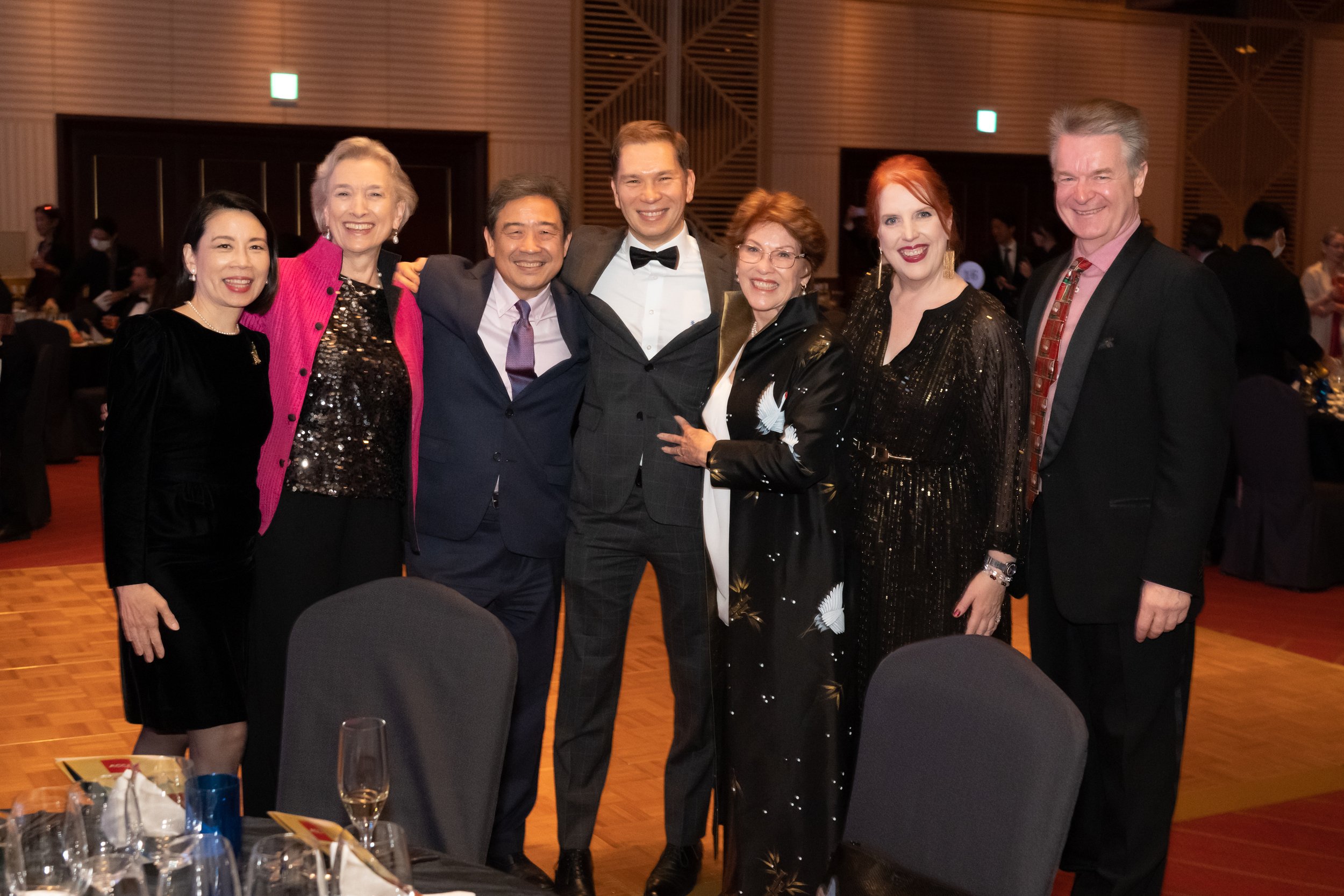
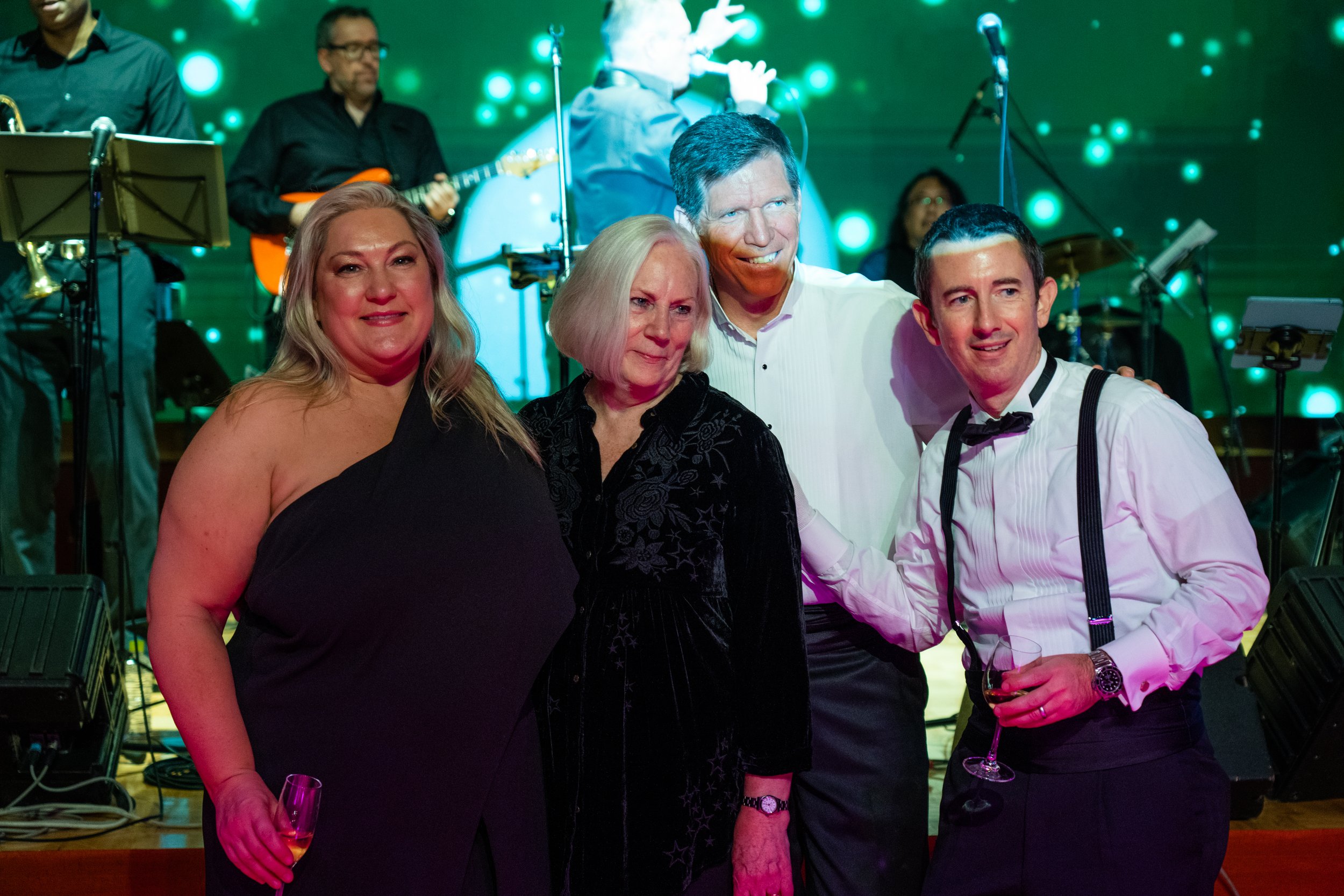
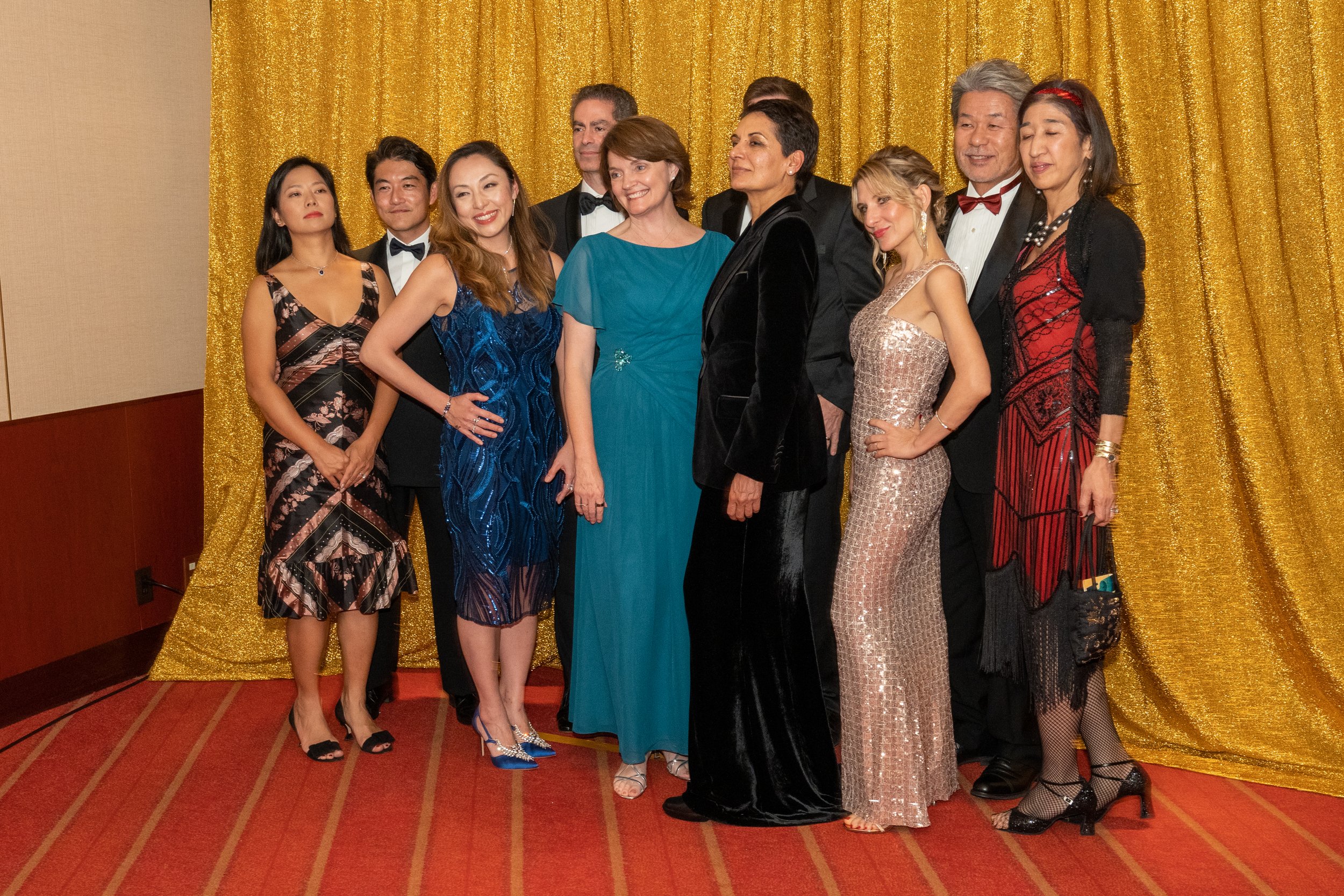
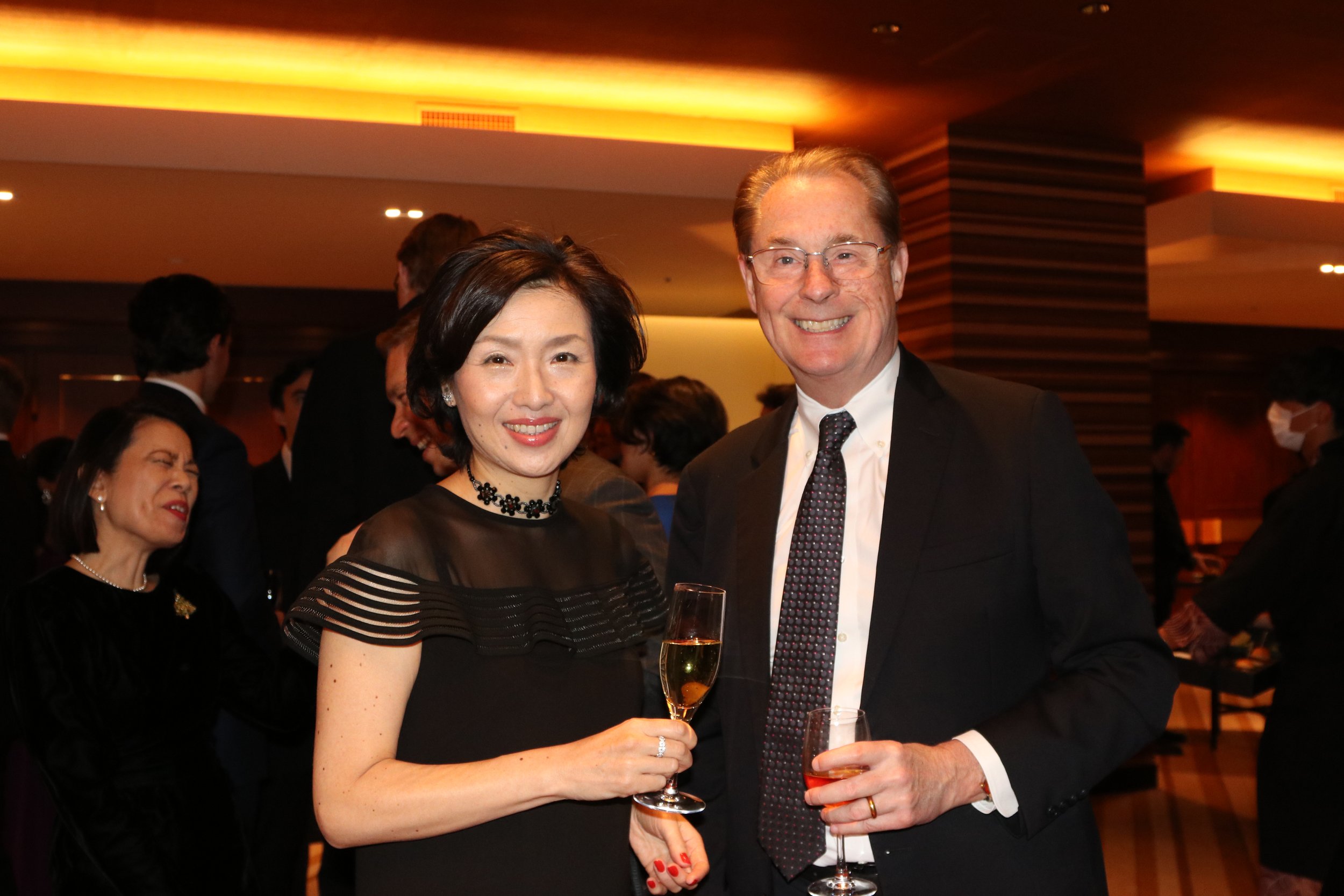


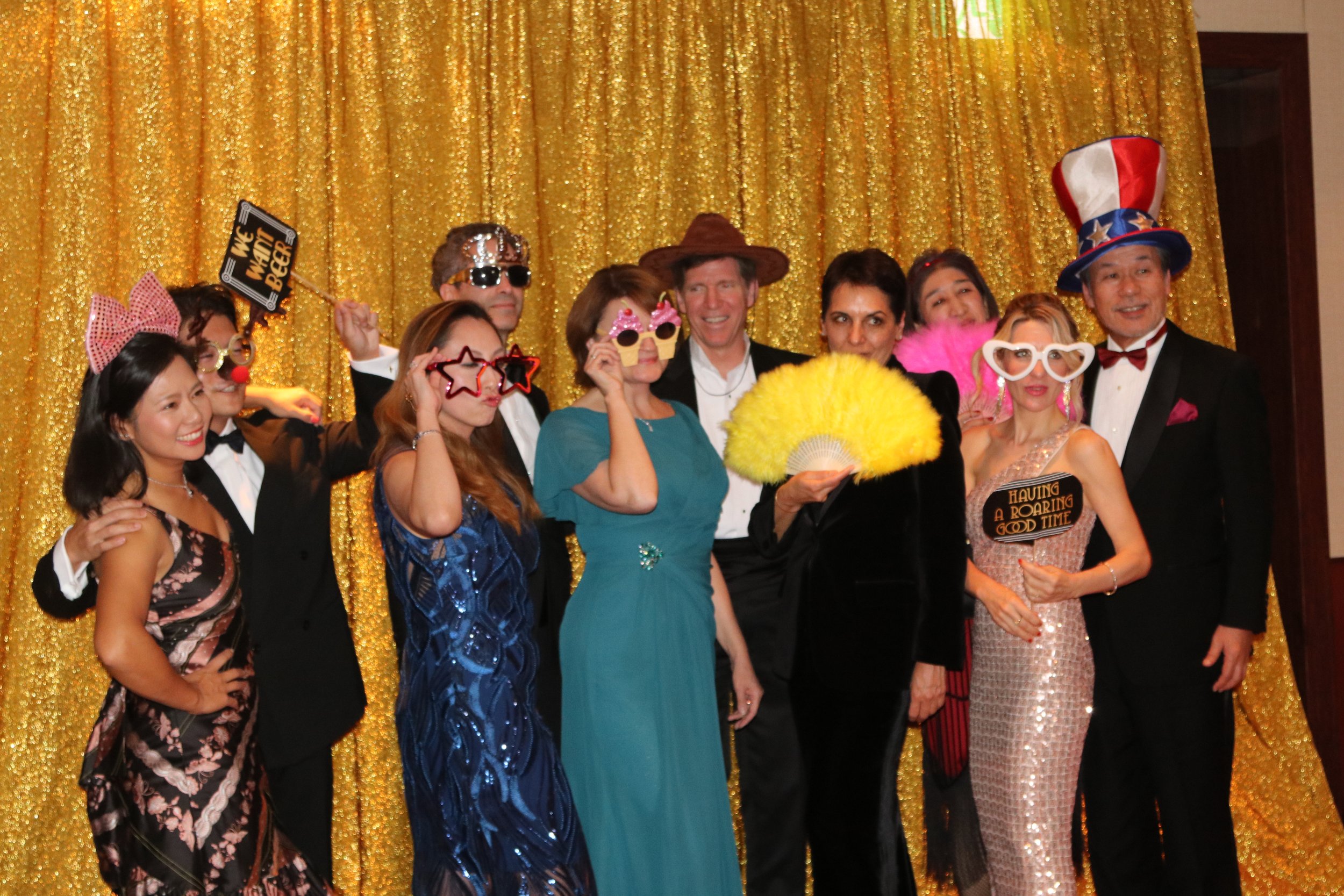
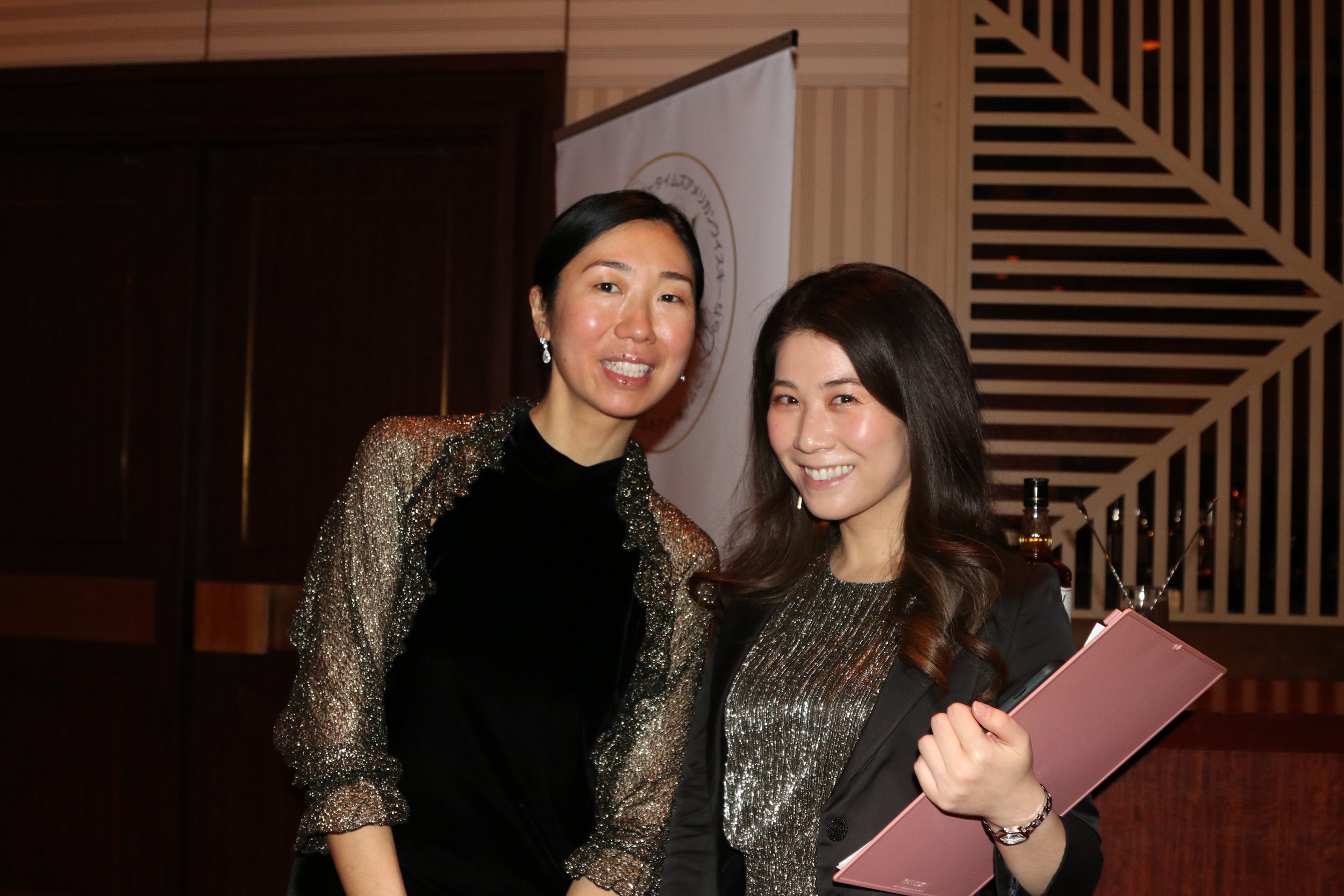


Photo of Ambassador Emanuel: US Embassy, Tokyo • All other photos: Media Sense K.K.
President’s Circle Sponsors
Platinum Sponsor
Thomson Reuters
Bronze Sponsors
AIG Companies in Japan
Coca-Cola (Japan) Co., Ltd.
Prudential Financial, Inc.
Gold Sponsor
Boeing Japan K.K.
Mercury Sponsors
Morgan, Lewis, & Bockius LLP
American Automobiles Space
NRK Sogo Kikaku Co. Ltd.
Prize Sponsors
Diamond
Air Canada
Aquasense Hotel & Resort
Delta Air Lines
Double Bounce Productions Inc.
Fufu Hakone
Herman Miller Japan, Ltd.
KOA Production Inc.
Marriott International, Inc.
MediaSense K.K.
MnK Niseko
United Airlines, Inc.
Vega Project K.K.
Ruby
Andaz Tokyo Toranomon Hills
Grand Hyatt Tokyo
Hakuba Hotel Group
Sapphire
Amway Japan G.K.
Dhillon Marty Inc.
ELC Japan K.K. (Estée Lauder)
Mondelēz Japan Ltd.
Park Hyatt Tokyo
Shop Japan
Sunrockers, Ltd.
Tokyo American Club
Emerald
All Nippon Airways Co., Ltd.
ANA InterContinental Tokyo
Antenna America
Asian Tigers Mobility
Big Picture International, K.K.
Bistro Vino Cellars
Conrad Tokyo
DevilCraft
Eastern Carpets
Elana Jade
Enplus Inc.
Food-e
Godiva Japan Inc.
Hafele Japan K.K.
HARIBO Japan
Hilton Tokyo
Hilton Tokyo BayHotel Indigo Inuyama Urakuen Garden
Hotel Indigo Karuizawa
Hyatt Regencv Kyoto
Jupiter International Corporation
M. ISHII & SONS
Northrop Grumman Japan
Palmer House
pearls.jp
Riedel Japan
Sazerac Japan
Simon Dalby Art
The Strings by InterContinental Tokyo
Temple University Japan Campus
Tsingtao Brewery
Yellow Toes Art Gallery
YouMeWe
Leading the Way
Each year, the American Chamber of Commerce in Japan (ACCJ) honors members who have shown extraordinary dedication. On December 20, recipients were recognized in person for the first time since 2019 at a special Leadership Forum networking event, chaired by ACCJ Governor John W. Carlson III, at The Tokyo Edition, Toranomon.
The ACCJ recognizes exceptional contributions for 2022 from across its three chapters
Each year, the American Chamber of Commerce in Japan (ACCJ) honors members who have shown extraordinary dedication. On December 20, recipients were recognized in person for the first time since 2019 at a special Leadership Forum networking event, chaired by ACCJ Governor John W. Carlson III, at The Tokyo Edition, Toranomon.
“ACCJ leaders set the bar high, but are incredibly generous about sharing their knowledge and experience, and I have benefited so much from being a part of this community,” Leader of the Year Anne Smith told The ACCJ Journal. “To be recognized and to have my name officially added to the history of the ACCJ in this way is a career highlight.”
Steven Brown, who created the Ten Points on Business Dinner Series, said being named Leader of the Year for Chubu was “a great honor and quite a surprise.” He added that the most challenging part of the year was overcoming the long hiatus from in-person events forced upon the chamber by Covid-19. “In truth, I was a bit nervous about whether the presentations would be a success, but the speakers have been excellent—both entertaining and informative.”
Kansai Volunteer of the Year Naomi Iwasaki said the award was “like receiving a Christmas present. But I know I am receiving this representing the D&I Committee. Without their love and support, I would not be here today.”
Taking on the emcee role at the D&I Summit and Leadership Series “was exciting and challenging,” she explained.
The ACCJ also honored Ritchell Madikaegbu with a Special Recognition Award for her work as liaison from the US Embassy, Tokyo. Her valuable updates on women’s empowerment and leadership development initiatives—along with spearheading opportunities to connect and share best practices with other organizations supporting the committee’s shared goals—made a big difference in 2022.
“I am truly happy about the honor, and it is a reminder of the importance of the US Embassy–ACCJ partnership,” she said. “I look forward to doing my part to advance US Embassy and ACCJ priorities in Japan in 2023.”
Anne Smith
Dual roles led to Leader of the Year honors for Anne Smith, whose tireless work as vice-chair of both the Government Relations and Healthcare Committees has elevated the ACCJ’s relationships with US and Japanese government partners. She is the face of the Government Relations Committee, setting meeting agendas and running committee-hosted events, and she spearheaded several defining events of the year, including the welcome luncheon with US Ambassador to Japan Rahm Emanuel, attended by more than 160 members and guests. And her work with the Healthcare Committee resulted in meetings with top-level government and industry leaders. Smith’s passionate dedication serves as an inspiration to others and the ACCJ is grateful for her impactful contributions to the chamber’s position as the voice for global business in Japan.
Akimasa Kataoka (Kansai)
Recognized for his superb leadership as co-chair of the Kansai Membership Relations Committee (MRC), Akimasa Kataoka revitalized the MRC and was a driving force behind the committee’s first in-person event in more than two years. Thanks to his efforts, the committee now has a growing membership base and many new events underway, including a young professionals mentorship program. Kataoka’s energy and commitment have created new opportunities for members to participate and get involved in the Kansai Chapter.
Steve Brown (Chubu)
As a founding member of the Chubu Independent Business Committee (IBC), Steve Brown served as the committee’s first chair. He returned to IBC leadership this year, determined to reinvigorate the Chubu Chapter, and provided exceptional leadership as co-chair. He conceived of the Ten Points on Business Dinner Series, in which experienced business leaders shared key insights that led them to success and mistakes that have proved educational. Brown’s enthusiasm and tireless efforts made these monthly events a tremendous success, reengaging members and reestablishing the solid foundation of the Chubu community, and he continues to inspire leaders in the Chubu Chapter and throughout the chamber.
Takako Onoki
Contributing endless energy and expertise to the Competition Policy Committee, Takako Onoki has made invaluable contributions, proactively organizing new speaker events and coordinating advocacy initiatives. She swiftly marshals the committee’s views on public comment opportunities to ensure that the ACCJ has a strong voice on key industry issues. As the committee’s most active member for several years, Onoki is an integral part of the committee’s leadership. The chamber is grateful for her passion and continued dedication.
Naomi Iwasaki (Kansai)
It is for her proactive and enthusiastic support of the Kansai Diversity and Inclusion Committee that Naomi Iwasaki was named Volunteer of the Year. She was critical to the success of the D&I Summit Series, where she managed the Day 2 networking session and served as emcee on Day 3. She also collaborated directly with committee leaders and the speaker for one of the popular Leadership Series speaker sessions. Iwasaki provides an important perspective during committee meetings and is an indispensable asset to leaders and members alike. Her inclusive workstyle encourages others to further participate in realizing the committee’s goals and inspires inclusive business practices.
Rafael Dantas (Chubu)
The ACCJ expresses its deepest appreciation to Rafael Dantas for his outstanding efforts in support of the Chubu Aerospace and Manufacturing Committee (AMC). He organized the Chubu Chapter’s first in-person networking event since before the pandemic, secured a venue where adequate social distancing was possible, and planned activities to facilitate networking among the participants. Due to his ingenuity and initiative, this and a follow-up event were resounding successes, resulting in three new members joining the ACCJ Chubu Chapter. Dantas’s positive energy, superb ability to organize, and strong networking skills are an asset to the entire chamber.
Healthy Ideas
The 2022 HxD event was modeled on the concept of ideathons, or workshop-like gatherings of groups tasked with challenges for which they are to propose solutions. Through this model, a total of 86 ideators, facilitators, and mentors worked together through a cyclic ideation process to identify root causes and develop the next big project in healthcare.
Innovators empower elderly patients at ACCJ Healthcare x Digital Ideathon
Started in 2020, the Healthcare x Digital (HxD) initiative of the American Chamber of Commerce in Japan (ACCJ) has grown to become a key platform for collaboration among innovators, startups, entrepreneurs, and top pharma executives.
After hosting pitch events for the first two years, the first ever HxD Ideathon took place late last fall with a hybrid in-person and online kickoff at the Hilton Osaka on October 29. This was followed by two virtual sessions on November 5 and 12, then finalized by the hybrid pitch event on November 19 at the Hilton Osaka. The four-day event was inspired by the tagline “empowering elderly patients through digital health.”
Participants included university students from the United States and Japan as well as healthcare professionals and a panel of judges from healthcare fields. Their aim? To forge new partnerships and create solutions for some of Japan’s most critical challenges in community healthcare and individual patient care.
Ideathon
The 2022 HxD event was modeled on the concept of ideathons, or workshop-like gatherings of groups tasked with challenges for which they are to propose solutions. Through this model, a total of 86 ideators, facilitators, and mentors worked together through a cyclic ideation process to identify root causes and develop the next big project in healthcare.
Day one began with opening remarks by Simone Thomsen, president and representative director of Eli Lilly Japan K.K. as well as ACCJ governor-Kansai, and continued with a panel discussion and ideation in groups to define problem statements and the healthcare challenges to be tackled. Ideation continued on days two and three, when teams focused on initial designs and worked to find agreement on a solution—one per group—that was to be presented on pitch day.
The event culminated on November 19 with a pitch contest in which nine teams presented their concepts, and engaged in question and answers sessions with judges, who then selected the best ideas. The winning teams will move forward to the next phase of the competition—a hackathon—to be held in 2023.
Pitch Day
The final day was divided into two rounds during which each group had five minutes to pitch their solution to a panel of judges.
Perhaps the biggest draw of HxD is the opportunity to present ideas directly to—and receive invaluable feedback from—industry leaders. There’s also the possibility of entering into a joint venture with, or receiving investment from, an industry player.
Winners also receive cash prizes and, this time, will have the chance to present their ideas at the 2025 Osaka Kansai Expo and as part of the Japanese government’s Super City Initiative.
Let’s take a look at this year’s pitches.
Kyocare
Presented by Hiba Abulgasim, Kyocare is a digital customer-to-customer and business-to-business platform that provides flexible, personalized, quality care.
In the pitch, Abulgasim noted that 28.9 percent of Japan’s population is over the age of 65 —a record number that is growing. But the workforce tasked with caring for them is understaffed and overworked, and about 70 percent want to leave the profession.
This means care services are poorly coordinated. Many elderly people feel lonely and disconnected as a result, and family members tasked with their care feel stressed out.
The solution? Kyocare provides on-demand caregiving services for the elderly through an app that matches those who need long-term home care with nearby care workers.
Hi-Real System
A digital ecosystem pitched by Masato Suzuki and Sachiko Nakatsuka, Hi-Real System allows emergency-patient health records to be accessed by healthcare professionals even before emergency care is provided.
In their problem statement, Suzuki and Nakatsuka asked, “How do we support emergency triage when medical resources, such as medical staff, are limited?” Their solution involves a blockchain emergency information transmission service that instantly shares patient information to the hospital before patient arrival, which can then be used for smoother emergency treatment diagnosis.
Maya Mind
Osaka University Assistant Professor Gajanan Revankar presented Maya Mind, a web platform accessible via smartphones, tablets, or personal computers that targets patients who suffer from dementia. Revankar noted that, during early onset of dementia, diagnosis is time consuming and costly, while accuracy is low. Maya Mind seeks to tackle all these challenges.
The app uses eye tracking, speech processing, artificial intelligence (AI)-based analytics, and machine learning algorithms to create an index score for classifying different kinds of dementia, among other provisions.
AI Assistant
Ajinkya Takawale and Tomoko Mitsuoka pitched a voice-controlled AI assistant with a focus on early diagnosis of chronic kidney disease (CKD) and diabetes. The challenge before Takawale and Mitsuoko included how to leverage digital technologies to make the elderly more aware of their health risks through early diagnosis. Their voice-controlled robot uses non-invasive methods such as retinal imaging to track, record, and analyze an elderly person’s healthcare data. Using the results, they provide a diagnosis and help the person plan their lifestyle based on the insights.
Toilet Light Sensor for CKD
Chisato Banno and Reiko Tsubaki, both third-year students at Tokyo Medical and Dental University, also pitched a digital solution for patients at risk of CKD. Their solution offers a low-cost yet accurate Internet of Things device that samples, analyzes, and visualizes a person’s real-time health data, helping them to diagnose the onset of CKD early.
Their first prototype will use toilet-based light sensors that can analyze urine. The data gathered can be visualized via a smartphone app, which also can share data with a relevant healthcare provider, such as a hospital.
Helper-san
An avatar bot that identifies and neutralizes triggers that cause aggression in dementia patients, Helper-san is a digital platform that was presented by students and researchers Shobha Dasari, Allison Jia, Kanon Mori, Aarushi Patil, and Tsubasa Tanabe.
The students and researchers are part of a collaboration involving universities in Japan and the United States brought about by the Japan-American Innovators of Medicine, a four-month program in which medical innovators from both countries join to tackle a global healthcare issue related to dementia, such as aggression.
Their bot, which is embedded in a small, television-like device, can track a patient’s behavior, identify aggression triggers, and defuse them. An example would be dimming or turning off a light source that has been identified as the trigger.
Parapul
A web app presented by Kasper Watanabe, Parapul helps caregivers obtain the information they need, build relationships with like-minded people, and support their caregiving lives.
As the portion of society classified as elderly increases, Watanabe noted, the physical, mental, and financial burden on family members will grow, and yet such caregivers often lack the information necessary to provide care.
The Parapul platform is based on three pillars:
- Providing customized information, such as nursing care, educational materials, or local service listings to family members who are caregivers
- Connecting caregivers so they can share their challenges on bulletin boards, question-and-answer boards, or via direct messaging
- Offering a caregiving management system that, for instance, allows users to schedule nursing care support
Mobile Health
Pitched by Jingwen Zhang and Nondo Jacob Sikazwe, Mobile Health (mHealth) is a community platform that allows those at risk of CKD to be inspired to connect and receive information that can help them manage the condition.
During their presentation, the ideators noted that there are few digital tools on the market to help patients prevent or manage CKD. Why is this? First, individuals at risk, or who have early onset, of CKD have no or only slight symptoms that cause them inconvenience in daily life.
What’s more, those with middle-to-low incomes often struggle with daily living, which leaves little time and few resources to access primary healthcare.
Lastly, current biomarkers used to screen for CKD are affected by many factors, so there is a need for regular checkups.
Their community platform solves these challenges by incentivizing elderly people and their caregivers in three key areas:
- Motivation: where you can collaborate with the local community and receive community rewards for positive lifestyle changes
- Connection: where you can communicate directly with a healthcare provider
- Education: participate in customized, immersive games, quizzes, audio guides, and more that shed light on the issues of CKD
Coupon Kun
The final pitch, by Zechen Zeng and Keita Tsuyuguchi, addressed loneliness among elderly, which has reached epidemic levels. Zechen and Tsuyuguchi’s solution is a social network being developed in four phases. Phase one is to create a “Groupon experience,” through coupons for groups, that incentivizes elderly individuals to experience new things—such as hobbies, lessons, or traveling—with new social connections.
In phase two, the platform aims to introduce digital literacy to the elderly, including adoption of smart devices, while they undertake the group experiences.
In phase three, apps are used to monitor, collect, and share the health data of users with healthcare professionals following strict data privacy and security protocols.
And in phase four, insights gleaned from healthcare data are used to help users follow a healthy lifestyle.
Winners
With so many innovative ideas to consider, selecting the winners was not easy for the panel of industry professionals tasked with judging the 2022 HxD Ideathon.
Pitches were scored based on scientific innovation, relevance and timeliness, business feasibility, and how well they addressed the core issue.
Three ideas were selected to advance to the HxD hackathon in 2023:
- Maya Mind
- Hi-Real System
- Toilet Light Sensor for CKD
One other, Kyocare, was given special recognition and will also be part of the hackathon.
Overall, 119 ideators, facilitators, and students participated in at least one day of the ideathon, and connections were made with more than 22 universities for future events.
Judges
Kozo Mori
Director, Medical Industry City, Medical and New Industry Division, Planning and Coordination Bureau, Kobe City Hall
Masayoshi Yamada
Deputy director, Department of Smart City Strategy, Strategy Promotion Office, Regional Strategy Promotion Division, Osaka Prefecture
Torsten Kanisch
Executive officer and vice president, commercial excellence, AstraZeneca K.K.
Christian Boettcher
Consulting partner, health sciences and wellness, EY Strategy & Consulting
Francisco Proano
Head of strategy and digital transformation, Bayer Yakuin
Yasuhiko Iida
Senior director, Consumer Experience Team and Next Generation Customer Engagement Strategy, Eli Lilly Japan
Hiroki Kayama
Strategic partnership development manager, AI for Japan, Google G.K.
A Culture of Inclusion
Shaping workplace culture and inclusion. Leading the change. These are the themes of the 2022 ACCJ-Kansai Diversity and Inclusion Summit, which will again follow the format of three two-hour online sessions, to be held over successive weeks in October and November.
Previewing this year’s ACCJ-Kansai Diversity and Inclusion Summit Series
Shaping workplace culture and inclusion. Leading the change. These are the themes of the 2022 ACCJ-Kansai Diversity and Inclusion Summit. Following the same format that debuted to great success in 2020, three two-hour online sessions will be held over successive weeks in October and November, each with its own keynote speaker, small-group discussions, and practical training.
The format was born of the pandemic, when organizers had to adapt the normally daylong program to a world of virtual interaction. It proved highly successful. The online format opened up access to people throughout Japan, and registrations rose from 224 for the previous year’s in-person event to 320. Similar results were repeated last year. Not only has accessibility been boosted, but the extended interactions also strengthened the summit’s impact and benefits.
With such success, the committee has decided to stick with the three-day series, and this year will host sessions on October 4 and 18, as well as November 8.
The first day will focus on gender diversity and equality, and will feature a training session with Jennifer Shinkai, an ikigai and inclusion facilitator and coach. The main session for the day will be led by Tetsuya Ando, founder of Fathering Japan, the non-profit organization he started in 2006 to focus on supporting fathers who are balancing the responsibilities of work and home.
The second day will feature a discussion of cultural diversity and inclusion with Nissan Corporate Vice President Catherine Perez, while Day 3 will explore psychological safety in sessions hosted by Google.
The series will be a wonderful opportunity to share personal and professional experiences in advancing D&I in Japan and abroad, including strategies that can be employed individually, at work, and in the community at large. Additional coverage can be found on the Digital Journal website following the sessions.
An Evening in the Windy City
Despite being virtual, the 2020 and 2021 galas brought great fundraising success. But there’s no substitute for the vibrant atmosphere of a live event. So, the ACCJ Charity Ball Committee, in partnership with the ACCJ-Kansai Community Service Committee, has been hard at work to bring the Charity Ball back, live and in person. On December 3, we’ll unplug from virtual space and step back to a more analog era as we gather at the Hilton Tokyo in Shinjuku to celebrate the Windy City itself: Chicago.
The ACCJ Charity Ball returns for an in-person celebration of Chicago
One of the most popular dates on the social calendar each year is in December. That’s when the American Chamber of Commerce in Japan (ACCJ) hosts the annual Charity Ball. Since the onset of the coronavirus pandemic in early 2020, the exciting gathering has been pushed online. But this year, the winds of change are blowing. On December 3, we’ll unplug from virtual space and step back to a more analog era as we gather at the Hilton Tokyo in Shinjuku to celebrate the Windy City itself: Chicago.
Despite being virtual, the 2020 and 2021 galas brought great fundraising success. But there’s no substitute for the vibrant atmosphere of a live event. So, the ACCJ Charity Ball Committee, in partnership with the ACCJ-Kansai Community Service Committee, has been hard at work to bring the Charity Ball back, live and in person.
The theme will offer attendees a chance to experience Chicago—from food to music to spirits. And don’t worry, there’s no prohibition here! We hope you’ll dress the part and bring back the chorus lines of Chicago or that Blues Brothers look made famous by John Belushi and Dan Akroyd.
Community Support
While the Charity Ball is great fun, and a chance to close out the year by celebrating with friends and networking with business associates, it’s also an important opportunity to raise money for the local community. As the chamber’s biggest fundraiser of the year, the Charity Ball supports the ACCJ Community Service Fund, which provides assistance to recipients for whom relatively small donations have a significant impact.
This year, the selected charities focus on at-risk children—including homes and programs for these children—as well as the homeless and citizen science.
These charities include:
- The Mike Makino Fund
- The ACCJ Community Service Fund
- YMCA/ACCJ Ohisama Camp
- YouMeWe
- Children’s Shelter Okinawa
- Safecast
- Kansai Food Bank
- Minna no Gohan
- Kurumu
You can learn more about these charities on the ACCJ website. Details about the entertainers, food and drink, and the ever-popular raffle will be added as we get closer to the event.
Sponsorships are also available and are a great way to highlight your business while making a real difference in the community.
We look forward to seeing you on the streets of Chicago and toasting the return of the in-person Charity Ball!
December 3, 2022
Hilton Tokyo, Shinjuku
Tickets and details: accj.or.jp/charityball
2022 DC Doorknock
ACCJ leaders made their first DC Doorknock visit to Washington since before the pandemic June 14–16. View a selection of photos from the event.
From left: ACCJ Executive Director Laura Younger, President Om Prakash, Chair Eriko Asai, and Governor Victor Osumi
American Chamber of Commerce in Japan (ACCJ) leaders made their first DC Doorknock visit to Washington since before the pandemic June 14–16. ACCJ President Om Prakash was joined by Chair Eriko Asai, Governor Victor Osumi, Special Advisor Christopher LaFleur, and Executive Director Laura Younger as they engaged face-to-face with members of the executive branch and Congress.
The annual DC Doorknock, which was canceled in 2020 and 2021 due to Covid-19, is an important part of the ACCJ’s dialogue with the US Government and is key to the chamber’s advocacy efforts. The delegation received a warm welcome from administration officials, members of the Senate and House of Representatives, the Embassy of Japan, the US Chamber of Commerce, and various think tanks.
“There’s energy and urgency in the US–Japan partnership on all fronts—from the economy to national security,” said Prakash, “[and] we are pleased and encouraged to see the United States leading in the region, and the heightened role Japan has taken on the world stage.”
Changed Reality
When Rahm Emanuel arrived in January as the 31st US ambassador to Japan, he wasted no time in building new connections and strengthening existing ties between the two countries. His experiences as mayor of Chicago, President Barack Obama’s chief of staff, a member of the US House of Representatives, and senior advisor to President Bill Clinton coalesce into a whirlwind of diplomatic energy. On May 16, Emanuel took time out from this fast-paced schedule to speak to members and guests of the American Chamber of Commerce in Japan (ACCJ).
US Ambassador to Japan Rahm Emanuel shares his views on the state of the bilateral relationship
Photos by Miki Kawaguchi/LIFE.14
Listen to this story:
When Rahm Emanuel arrived in January as the 31st US ambassador to Japan, he wasted no time in building new connections and strengthening existing ties between the two countries. His experiences as mayor of Chicago, President Barack Obama’s chief of staff, a member of the US House of Representatives, and senior advisor to President Bill Clinton coalesce into a whirlwind of diplomatic energy. He has already visited 10 of Japan’s 47 prefectures and attended events stretching from Hiroshima to Otsuchi, in Iwate. And his love of trains and use of the country’s mass transit has captured the hearts of Japanese media.
On May 16, Emanuel took time out from this fast-paced schedule to speak to members and guests of the American Chamber of Commerce in Japan (ACCJ). Organized by the ACCJ Government Relations Committee, the luncheon at Tokyo American Club saw more than 200 in-person and remote attendees listen as the ambassador shared his thoughts on Japan and the great potential for the bilateral relationship. Emanuel also graciously responded to a range of questions during a lengthy Q&A session.
Following a welcome from committee Vice-Chair Anne Smith, ACCJ President Om Prakash delivered opening remarks. Noting that the ACCJ, as the voice of the US business community, has enjoyed a close and valuable relationship with the US Embassy, Tokyo, over the course of the chamber’s nearly 75-year history, he said, “I can’t think of a better person at the right time in the right place than this man.” In response, the ambassador quipped, “Intros like that make you wish your parents were here, because you know your mother would be proud and your father would be amazed.”
Impact on Investment
Emanuel began by noting that, after two years without an ambassador to its most important ally in the most important region, the White House and President Joe Biden are placing great value on Japan. The bilateral relationship, Emanuel believes, is at an inflection point. “We are no longer discussing, as we have for the past 40 years, alliance protection. I think the US–Japan relationship has matured into alliance projection,” he explained. “Yes, it’s about the two countries, but it is about the two countries projecting forward into the region in a shared way.”
As he said this, the embassy was preparing for Biden’s May 22–24 visit. That the trip took place so soon after the ambassador’s arrival highlights how their long working relationship energizes efforts to build cooperation with the administration of Japanese Prime Minister Fumio Kishida.
Stable, Sustainable Business
The challenges facing the world are many, and some are shaking the foundations of long-held approaches to business operations.
Emanuel said he feels we are transitioning from neoliberalism to a world in which consideration of potential conflict and political turmoil must play a key role in corporate decisions.
“There have been three major events that have shaken people and their calculations of what is going to be the road going forward,” he said. “And it’s a level of uncertainty, and an intensity of uncertainty, that really hasn’t been experienced in a long time when it comes to international affairs and international economics.
“My own view is that low cost and efficiency, which have been the guiding North Star for your individual companies for how you make investments, where you make investments, etc., those North Stars are slowly but surely … being replaced by stability and sustainability. No company today making a major decision economically, internationally, is going to be stuck with a major investment in an insecure, unstable political environment, a country that can one day have major sanctions [placed] on it,” he continued, alluding to the fallout from Russia’s invasion of Ukraine and the potential for future conflicts.
New Calculus
The coronavirus pandemic, he noted, has already exposed the fragility of supply chains, and the war in Ukraine is having a similar impact in how it raises concerns over uncertainty in and around political systems, even in democratic countries. “You’re going to start to change the calculus of how you make investments, based on whether a country is politically stable and if it lives by the rule of law. Does it have the resilience and sustainability that you need as a company?”
Speaking of uncertainty as it pertains to international trade, Emanuel said that we are witnessing the emergence of a new political and economic equation, one that will become clearer over the next five years. To stability and sustainability he added resilience. “Each of those, in some way, becomes more dominant in how we think about political decisions, commercial decisions, and economic decisions.”
He closed by saying that he feels we have a unique opportunity to advance US–Japan relations.
“I said when I was confirmed, I think that what we do in the next three years, as the US and Japan, will determine our relationship for the next 30.”
The ambassador believes that, if Kishida emerges victorious in the July elections, Biden has a chance to build a solid foundation with the Japanese prime minister, with whom he came to be on a first-name basis after they had spent just one day together in May.
Emanuel knows what can happen when there is instability at the top, and how that can impact the bilateral relationship. As Clinton’s senior advisor, he saw six Japanese prime ministers come and go in eight years. “As soon as you started to get to know somebody, they were gone,” he said. “There’s a chance President Biden will have one prime minister for his tenure,” he continued. “That’s a unique opportunity not only to develop a relationship but [to work with] a person who, without an election overshadowing decisions, has the ability to make some real decisions for the future of the US–Japan relationship, including as it relates to the Indo–Pacific.”
To that end, Emanuel applauded Kishida for his leadership in the face of recent global uncertainty.
“One of the things I think Prime Minister Kishida has done very successfully is he has taken the Indo–Pacific and the Transatlantic and collapsed them into a single strategic sphere,” he said. “Just in the past 10 days, he’s hosted the European Union president, the Finnish prime minister, the chancellor of Germany and, two days prior to that, on his visit to Europe, he was with the British prime minister, the Italian prime minister, and the Pope. That should be seen as a way in which Europe now has a vested interest in a free and open Indo–Pacific. That is a major change of where we are politically and a major change of where we are economically.”
Concluding his speech, Emanuel told the crowd: “I look forward to the next three years working with each of your companies and promoting not only your commercial interests but, more importantly, our shared interests.”
Final Frontier
Cooperation between the United States and Japan in the space industry is growing stronger and represents a great pathway for innovation in the bilateral relationship. A significant player in the space travel industry in Japan is the Space Port Japan Association (SPJ), which was established in 2018 and is attracting considerable attention on both sides of the Pacific. SPJ co-founder and Representative Director Naoko Yamazaki joined members of the American Chamber of Commerce in Japan (ACCJ) on April 21 for an hour-long online discussion.
Former astronaut Naoko Yamazaki shares her vision for bilateral space cooperation and spaceports in Japan
Listen to this story:
The United States and Japan share a long history of collaboration in space, working together on projects such as the International Space Station (ISS) and the Artemis program, which aims to return astronauts to the moon by 2024 and can also be seen as a preparatory stage for human missions to Mars.
Cooperation between the two countries in the space industry is growing stronger and represents a great pathway for innovation in the bilateral relationship. A significant player in the space travel industry in Japan is the Space Port Japan Association (SPJ), which was established in 2018 and is attracting considerable attention on both sides of the Pacific.
SPJ co-founder and Representative Director Naoko Yamazaki joined members of the American Chamber of Commerce in Japan (ACCJ) on April 21 for an hour-long online discussion organized by the Chubu Aerospace and Manufacturing Committee.
Licensed to Fly
The accomplishments of Yamazaki, who participated as a panelist at the ACCJ Women in Business Summit in 2014, are impressive. Currently she is a member of the Committee on National Space Policy at Japanese Prime Minister Fumio Kishida’s Cabinet Office. And as a former astronaut with the Japan Aerospace Exploration Agency (JAXA), she became the second Japanese women to fly into space when she took part in an assembly and resupply mission to the ISS in 2010 aboard the space shuttle Discovery. She retired from JAXA in 2011.
Besides appearing in the media to promote the SPJ, Yamazaki occasionally meets with government officials in both the United States and Japan. For example, US Ambassador to Japan Rahm Emanuel greeted her and space startup leaders at the US Embassy, Tokyo, in February to discuss bilateral collaboration on the space front.
Direct Connections
During the April 21 webinar, ACCJ members learned that direct cooperation began with the signing of the 1969 US–Japan Space Agreement and has since blossomed into a relationship involving many US-made products. While a young organization, the SPJ has already established relationships with four regional governments interested in hosting spaceports. The projects include:
- HOSPO (Taiki, Hokkaido Prefecture)
- Spaceport Kii (Kushimoto, Wakayama Prefecture)
- Shimojishima Spaceport (Okinawa Prefecture)
- Spaceport Oita (Beppu, Oita Prefecture)
Other cities in Japan are also interested in such an investment in point-to-point suborbital space transportation hubs.
Besides sending future passengers to other planets, spaceports in Japan could become a launchpad from which to transport time-sensitive food and cargo to other locations on Earth. For example, Yamazaki pointed out, entrepreneur and investor Elon Musk proposed in 2017 a plan to use his SpaceX rockets to fly passengers from New York to Shanghai in just 39 minutes.
Supporting STEM
Yamazaki is recognized as a space policy expert not only in Japan but also in the United States. She was recently invited by the University of Pennsylvania (Penn) as a visiting fellow at the Perry World House, a center for scholarly inquiry, teaching, research, international exchange, policy engagement, and public outreach on pressing global issues. She is lending her expertise to Penn so that its students can develop and advance innovative policy proposals, and hopes to see more Japanese students benefit from the experience of studying abroad.
Finally, Yamazaki spoke about her involvement in the Japanese Rocket Society, where she chairs the Sorajo Committee, whose name means women in aerospace. She is a staunch advocate of inclusivity and gender equality in the Japanese aerospace industry—a goal very much aligned with the beliefs of the ACCJ and its member companies. Science, technology, engineering, and mathematics—or STEM—is a growing area of passion for this former astronaut, and we hope to see her and other members of the SPJ at future ACCJ events.
Chubu Walkathon
On May 22, more than 1,000 participants took part in the 31st Annual Chubu Walkathon International Charity Festival. This year’s event took place on a beautiful Sunday in Nagoya’s Meijo Park and was also livestreamed. More than ¥7 million was raised to support local charities.
Annual event raises millions of yen for charity on a sunny day of food, friends, fun, and fitness in Nagoya
Photos by Andy Boone
On May 22, more than 1,000 participants took part in the 31st Annual Chubu Walkathon International Charity Festival. This year’s event took place on a beautiful Sunday in Nagoya’s Meijo Park and was also livestreamed. More than ¥7 million was raised to support local charities. The Walkathon’s mission is to improve the lives of the less fortunate by creating an opportunity to increase awareness, recruit volunteers, and raise funds at a family-friendly, international outdoor event. More than ¥177 million has been donated over 31 years, and 18 charities received funds in 2021.
Shared Interests and Values
Each year, the American Chamber of Commerce in Japan (ACCJ) honors those who have significantly impacted the global business environment in Japan with the ACCJ Person of the Year award. Former chair, president, and group chief executive officer of Mitsubishi UFJ Financial Group, Inc. (MUFG) Nobuyuki Hirano was selected as the 2021 Person of the Year not only for his work with MUFG, but also for his tireless efforts to promote better US–Japan business ties.
The ACCJ honors 2021 Person of the Year Nobuyuki Hirano
Listen to this story:
Each year, the American Chamber of Commerce in Japan (ACCJ) honors those who have significantly impacted the global business environment in Japan with the ACCJ Person of the Year award. Former chair, president, and group chief executive officer of Mitsubishi UFJ Financial Group, Inc. (MUFG) Nobuyuki Hirano was selected as the 2021 Person of the Year not only for his work with MUFG, but also for his tireless efforts to promote better US–Japan business ties.
During a career spanning more than 40 years, and as chair of the Japan–U.S. Business Council from 2017 to 2021 and a current vice-chair of the Keidanren (the Japanese Business Federation), Hirano has helped to strengthen global business. ACCJ members and guests recognized this on April 25 at an in-person event held at Tokyo American Club and livestreamed to remote attendees.
The luncheon began with a VIP session where ACCJ leaders greeted Hirano, after which ACCJ Governor and Financial Services Forum Chair Andrew Conrad welcomed members and guests, and provided background about the award. ACCJ President Om Prakash delivered remarks, saying that, in Hirano, “we are extremely lucky to have someone who is so thoughtful—and very methodical—in how he approaches incredibly complex issues between the United States and Japan, and the entire world.”
Values and Principles
Taking the podium, Hirano expressed his deep honor to have been chosen for the award, and thanked the chamber for its contributions as a member of the Japan–U.S. Business Council. “I appreciate the initiatives of all the ACCJ presidents—Christopher LaFleur, Sachin Shah, Peter Jennings, Peter Fitzgerald, and Jenifer Rogers—during my tenure."
He then addressed the importance of shared values and trust by taking attendees back to the eighties—1983 to be precise—when he had arrived in New York City as a trainee at Morgan Stanley. The two years spent there for his secondment was the start of an extraordinary journey that would make Hirano a bridge between the United States and Japan and lead him to a position on the firm’s board of directors, which he accepted in March 2008.
Speaking of his fellow directors, he said, “They often joke, ‘Nobu, you are the first, and possibly the last, guy who has been elevated from unpaid trainee to Board member.’”
During the 2008 global financial crisis, MUFG made a $9 billion strategic investment in Morgan Stanley—a move that Hirano says exemplifies the importance of shared values and principles between business partners. “This was a significant investment in its huge scale but, more so, in the sense that it is the only successful alliance between globally systemically important banks,” he explained. Worldwide, there are just 30 such banks, often called G-SIBs.
“But I believe it is more than this,” he continued. “James Gorman, now CEO of Morgan Stanley Investment Bank, and I agree that we actually have a similar corporate culture. I think it’s very important that our values and principles are similar, [in areas] such as putting the client first, doing the right thing, and [having] an appreciation for long-term perspective.”
Returning to the present, Hirano noted that there has been a series of global crises in the financial world—roughly one per decade—which “have had a huge impact that exceeded most people’s expectations.” These include the collapse of Japan’s bubble economy in 1990, the Asian financial crisis of 1997, and the global financial crisis that sent shockwaves through the markets in September 2008 with the collapse of Lehman Brothers—the event which brought together MUFG and Morgan Stanley.
Today, we are on the precipice of another shockwave.
“The world is at a critical juncture and has entered a period of great uncertainty. We are undergoing a once-in-a-century period of dramatic change, which has been described as the era of VUCA, or volatility, uncertainty, complexity, and ambiguity,” he said, adding that we are witnessing a crucial moment in history with Russia’s invasion of Ukraine.
“A question we need to ask in today’s society is what role business leaders should play.”
Cooperation on China
As part of his work with the Japan–U.S. Business Council, Hirano has been involved in the Japan–U.S. Business Conference, an annual event first held in Tokyo in 1961. The conference makes recommendations to the Japanese and US governments as well as related organizations.
At the 58th conference last fall—held virtually for the second year in a row due to the pandemic—a key topic of discussion was bilateral cooperation in the face of challenges from China.
“The struggle for supremacy between the United States and China is expected to be prolonged, while the economies of China and other countries are already deeply connected,” Hirano said. “There is consensus among business leaders that decoupling is unrealistic … with a slight difference [being that] Japanese businesses tend to be more cautious about risk due to Japan’s high level of dependence on China and its close geographical proximity. Their US counterparts take a more opportunistic stand.”
While this difference in risk aversion exists, the only way to successfully deal with China, he proposed, is for likeminded countries to continue acting together based on their shared interests and values.
“Working with likeminded countries to reach out to China has also affected the private sector. That’s what I believe,” he said. “In fact, last autumn, we jointly invited guests from the EU government and European industries to the Japan–U.S. Business Council for the first time, to discuss rebuilding the global order as well as sustainability.”
While China may not change course over the short term, in the next few decades, he added, China may face socioeconomic challenges, such as the declining birthrate and aging population. “These might substantially undermine China’s economic growth potential,” Hirano explained. “History shows that the distortions that occur alongside rapid economic growth are concealed until the growth slows. Once the distortions are revealed, they then force major structural reforms.”
Issues Uncovered
It has been more than two years since life as we knew it hit the brakes due to Covid-19. Hirano said the pandemic has not only disrupted the global economic order and increased political and geo-economic tension, but also revealed the global scale of the need to address sustainability issues. These include societal divisions, social inequality, and climate change.
“These problems,” he reasoned, “are largely due to globalization and excessive shareholder capitalism … Whether we like it or not, we will be forced to remodel the current socioeconomic systems that have supported capitalism up to now.
“However, we have no clear idea, yet, how to solve many of the problems. This is partly due to differences in values and principles among conflicting nations.”
This is where he sees the great asset that is the US–Japan relationship, which is built on shared values and principles. It is important, he stressed, for US and Japanese business leaders to discuss how to chart and navigate a course on issues such as carbon-neutrality targets and convey their opinions to local governments.
On this issue, he believes, it is very important that there be cooperation with other countries in Asia, particularly members of the Association of Southeast Asian Nations.
In terms of Japan’s economy, the country’s future may be in jeopardy, Hirano suggested, unless drastic measures are taken to address the serious issues laid bare by the pandemic.
“To overcome this situation, the public and private sectors must act with a sense of urgency to make large structural changes to socioeconomic systems, in particular, and to revitalize and restructure industry through digitization and green transformation,” he stressed.
United by Trust
As a final point, Hirano noted that it is trust which has allowed the United States and Japan to develop such good relations and that, while close-knit cooperation between the governments is no doubt a huge part of this, he believes a major factor is the human connection between the people of both nations, strengthened over many years.
And it is this trust, which “cannot be seen by just looking at economic numbers,” that he considers to be an extremely important asset as we move into a future that is uncertain—not just for countries, but for business partners as well.
“I’d like to conclude by expressing my sincere hope that the business leaders of Japan and the United States will further deepen relations and our mutual understanding which, in turn, will strengthen the relationship—the partnership—between our two countries,” he said. “I also wish for the continued prosperity and success of this excellent institution, the ACCJ.”
Activist Investing in 2022
The Fourth Annual ACCJ Shareholder Forum brought together experts for a look at the state of activist investing in Japan and the realities of the Japanese market.
Fourth Annual ACCJ Shareholder Forum brings together experts from Japan and overseas for a look at the state of the market
Tokyo Stock Exchange President and CEO Hiromi Yamaji delivers the keynote.
Why should anyone care about activist investing in Japan?
This is the question posed by American Chamber of Commerce in Japan (ACCJ) Alternative Investment Committee Chair Frank Packard as he opened the Fourth Annual ACCJ Shareholder Forum on June 7 at Tokyo American Club. The event, which was also livestreamed to remote attendees, has become an important part of the annual general meeting (AGM) season.
Four speakers explored this through a wide-ranging look at the realities of the Japanese market, corporate governance, activist investing, stewardship, shareholder proposals, and more after the keynote was delivered by Hiromi Yamaji, president and chief executive officer of Tokyo Stock Exchange, Inc. (TSE) as well as director, representative officer, and group chief operating officer of Japan Exchange Group, Inc.
Presenting were:
- Nicholas Smith, strategist with CLSA
- Andrew McDermott, president of Mission Value Partners
- Tsuyoshi Maruki, president and CEO of Strategic Capital
- Seth Fischer, founder and chief investment officer at Oasis Management
Packard himself offered some thoughts during the introduction.
“The past 30 years in Japanese public equities provide an interesting lens for today,” he explained. “I want to make the case that we should pay attention because active engagement in Japan might actually be the best global investment strategy today.”
This was not always the case. After the bubble economy of the 1980s burst, activist investing in Japan during the 1990s was somewhat primitive, Packard said. “Some notorious examples, often American, featured activists making simple demands for immediate action to get quick financial return for themselves, not for the companies or other shareholders. To be clear, activism in Japan did not start with an attractive image. But it’s come a long way.”
Japan’s Financial Services Agency began providing useful frameworks with written regulations in 2014 to encourage corporate governance and investor stewardship. Today, Japan is the world’s second-biggest market for activism. “Activists are doing well by doing good,” he said. These days, you’ll find many other groups addressing important governance topics—diversity of board members, foreigners as directors, and talk about disclosure on environmental, social, and corporate governance topics.”
But, Packard noted, very few people are focusing on the other code—the stewardship code—and what are best practices for improving corporate value. “This absence, we believe, is an opportunity for the ACCJ.”
Is ESG Good?
One of the most frequently heard terms in discussions of investing these days is ESG. And while a focus on improving environmental, social, and corporate governance would appear to be good, there are some growing doubts about how to apply it in a decision-useful and commercial manner.
“In theory, [addressing] climate change is a noble goal. Increasing disclosure of environmental impact, as the TSE has recommended and the ACCJ has advocated, that’s very good, too. But in practice, investing in ESG assets has led to many cases of greenwashing,” Packard said, using the term that refers to making inflated, unsubstantiated, or even false claims about the environmentally friendly nature of a product or practice.
“We’re seeing a lack of agreement on ratings and benchmarks, and some concerns that ESG might actually be too blunt an instrument for financial services,” he explained. “Some of the leaders of financial firms are now saying that, maybe, it’s time to retire ESG and its application for investing.”
Lastly, Packard asked where activist investing fits into today’s financial markets, at a time when all asset classes fell in value for the first time in 30 years. That happened during the first quarter of this year. “This has been very confusing for investors trying to do the right thing. Where can investors go to embrace sustainability and responsible investments? Could the answer be to focus on active investment and active engagement?” he asked. “It’s not only an academic or ethical question, it might also be optimal strategy in the current financial markets.”
A Look at the Market
Next, Yamaji delivered the keynote and spoke about what he sees as very important changes in the Japanese market.
“In addition to the excitement generated by the lifting of Covid-19 restrictions, this also has been an exciting time for us at the TSE as [we] went through a major overhaul this past April, kicking off major changes in the Japanese capital market.”
The TSE revamped its grouping of shares for the first time since 1961, replacing its four-market structure with one comprising three: prime, standard, and growth. The top tier is home to blue chips that have met corporate governance requirements which are higher than those of the previous first section. More than 80 percent of the companies that were listed in the first section have shifted to the prime market.
“As shareholders and investors engage with these companies, Japanese companies are undertaking significant changes to their business growth strategies through realignment of their business portfolio and through their new approaches to corporate governance,” Yamaji added.
The presentation portion of the event covered:
- A vertical review of activism comparison over several years as well as a horizontal view of the different engagements within the AGM season, provided by CLSA’s Smith
- A look at stewardship, what it means, and how it applies to 2022 Japan, as well as additional thoughts on ESG, from Mission Value Partners’ McDermott, who joined online from Tennessee
- A fund manager’s perspective on activism and tools used for preparing shareholder proposals, offered by Strategic Capital’s Maruki
- A recap of some past shareholder proposals and a look at the power of engagement and the 2022 proxy season, presented by Oasis’s Fischer
Packard concluded the event by thanking everyone who made it possible, including the ACCJ programs and communications teams as well as his fellow Alternative Investment Committee leaders, Vice-Chairs Pieter Franken, Deborah Hayden, Jason Topaz, and Christopher Wells. It was a great cooperative success.
Watch The ACCJ Journal for additional extended coverage of the presentations, coming soon.
2021 Person of the Year Photo Gallery
On April 25, 2022, the American Chamber of Commerce in Japan (ACCJ) recognized Nobuyuki Hirano as the 2021 ACCJ Person of the Year for his leadership and substantial contributions to the US–Japan relationship. View a selection of photos from the event.
Photos by Miki Kawaguchi/LIFE.14
From left: ACCJ President Om Prakash, Nobuyuki Hirano, 2021 ACCJ President Jenifer Rogers, and ACCJ Financial Services Forum Chair Andrew Conrad
On April 25, 2022, the American Chamber of Commerce in Japan (ACCJ) recognized Nobuyuki Hirano as the 2021 ACCJ Person of the Year for his leadership and substantial contributions to the US–Japan relationship.
During a hybrid event held at Tokyo American Club and livestreamed to remote ACCJ members and guests, the former chair, president, and group chief executive officer of Mitsubishi UFJ Financial Group, Inc. (MUFG) spoke about his long career.
The event began with a VIP session where ACCJ leaders greeted Hirano, after which ACCJ Governor and Financial Services Forum Chair Andrew Conrad welcomed luncheon guests and provided background about the award. ACCJ President Om Prakash delivered remarks and welcomed Hirano to the podium.
In addition to his work at MUFG, Hirano served as chair of the Japan-U.S. Business Council from 2017 to 2021, working tirelessly to promote better US–Japan business ties and to further strengthen the international business environment in Japan.
Following Hirano’s presentation and a Q&A session, moderated by Conrad, 2021 ACCJ President Jenifer Rogers presented the certificate.
The ACCJ Person of the Year Award was created in 1996 to enable the chamber to recognize individuals for their outstanding contributions to business and commercial relations between Japan and the United States. Past recipients include: Fujio Cho, honorary chairman of Toyota Motor Corporation; Hiroshi Mikitani, CEO of Rakuten, Inc.; and Caroline Kennedy, the 30th US Ambassador to Japan.
ACCJ Meets Congressional Delegations
A visit by senators in April also offered a chance to welcome back former Ambassador Hagerty.
A visit by senators also offered a chance to welcome back former Ambassador Hagerty
From left: ACCJ Vice President Douglas Hymas, ACCJ Chair Eriko Asai, Senator Ben Cardin, Senator Bill Hagerty, ACCJ President Om Prakash, ACCJ Governor Mari Matthews, and ACCJ Vice President Amy Jackson
The American Chamber of Commerce in Japan (ACCJ) was honored to meet with two congressional delegations this month.
On April 13, ACCJ leaders met with Senator Ben Cardin and Senator Bill Hagerty to discuss economic security and strengthening the US–Japan economic partnership.
This being the first opportunity to meet since the start of the pandemic, ACCJ President Om Prakash presented former US Ambassador to Japan Hagerty with the 2019 Person of the Year Award for his many contributions to the US business community in Japan during his tenure as ambassador and ACCJ honorary president from 2017 to 2019. Senator Hagerty was also a member of the ACCJ prior to serving as ambassador.
On April 16, the ACCJ met with Senator Lindsey Graham, Senator Robert Portman, Senator Richard Burr, and Representative Ronny Jackson to reaffirm the importance of strengthening the US–Japan business relationship and deepening our engagements in the Indo–Pacific region.
We look forward to working with the senators and US government leaders during future DC Doorknocks.
Photo 1: (from left) ACCJ Executive Director Laura Younger, Representative Ronny Jackson, ACCJ Chair Eriko Asai, Senator Richard Burr, Senator Robert Portman, ACCJ President Om Prakash, Senator Lindsey Graham | Photo 2: ACCJ President Om Prakash present former US Ambassador to Japan Bill Hagerty with the 2019 ACCJ Person of the Year Award, a moment long delayed by the pandemic.
Supplier D&I
While there is much talk in Japan about diversity and inclusion (D&I) in the workplace, another important, though less-discussed, aspect of D&I involves suppliers. Some major companies have long championed diversity in their supply chains, but the issue is now getting more attention—and progress is being made—thanks to the efforts of socially conscious leaders. This was the topic of a November 25 virtual event, hosted by the ACCJ-Chubu Programs Committee and entitled Supplier D&I: Three-Year Journey in the Japanese Market.
WEConnect International’s three-year journey in the Japanese market
Listen to this story:
While there is much talk in Japan about diversity and inclusion (D&I) in the workplace, another important, though less-discussed, aspect of D&I involves suppliers. Some major companies have long championed diversity in their supply chains, but the issue is now getting more attention—and progress is being made—thanks to the efforts of socially conscious leaders.
This was the topic of a November 25 virtual event, hosted by the ACCJ-Chubu Programs Committee and entitled Supplier D&I: Three-Year Journey in the Japanese Market. Speaker Setsu Suzuki, chief executive officer and founder of Hunext, Inc., shared how sourcing from women-owned startups is shaping the Japanese economy.
Connecting Women
Suzuki is the Japan project director for WEConnect International, the Washington, DC-based non-profit organization (NPO) that expanded its certification and market access activities to Japan in 2018. She recalled how, in 2017, she was invited by Gary Schaefer, principal officer at the US Consulate Nagoya, to attend the Global Entrepreneurship Summit in Hyderabad, India. Some 6,000 women business owners took part in the three-day event. There she had her first contact with WEConnect International, which helps drive money into the hands of women business owners by enabling them to compete in the global marketplace.
“That’s fantastic, right?” Suzuki exclaimed. “So, I immediately said that I want to be a member of this organization.” After getting to know leaders of the enterprise during the summit, she was asked to become the director of WEConnect in Japan. Three months later, she signed a contract with the international body and led its expansion into the market. Noting that WEConnect International is the only certifying body in the world that supports supplier diversity, Suzuki explained that there are five categories:
- Women
- Challenged
- LGBTQ
- Racial minority
- Veterans
“And women are really key,” she said. Globally, just one percent of procurement by governments and corporations goes to women-owned business.
“WEConnect International began studying this 12 years ago, but the number is still only one percent. We want to push it to two percent,” she explained.
“According to a World Bank report, 32–39 percent of companies around the world are owned by women. So, definitely, women are key to a diverse economy.”
Next, Suzuki introduced the companies among WEConnect International’s 143 member buyers that are most active in Japan:
- Accenture
- Johnson & Johnson
- Intel K.K.
- IBM Japan, Ltd.
- EY
- P&G Japan G.K.
- Microsoft Japan, Co., Ltd.
- Micron Memory Japan, G.K.
“More and more Japanese corporations are starting to pay attention to supplier diversity,” she said.
Where Are the Women?
There are 3.8 million small businesses in Japan, but only 500,000 are owned by women. What constitutes a woman-owned business (WOB)? It seems straightforward, and Suzuki noted that we use the term a lot in English.
But to make it clear what this means by definition, she explained that it should be “an incorporated company with at least 51 percent of the business owned and managed, or governed, by one woman—or more.” The WEConnect certification standards state that ownership “is determined based on title to, and beneficial ownership of, stock, membership interests, or other equity in the business.”
WEConnect allows self-declaration as a WOB. Such registration in their database is free and carries limited benefits.
“WEConnect International … helps drive money into the hands of women business owners by enabling them to compete in the global marketplace.”
There is also the Women Business Enterprise (WBE) designation (pronounced “weebee”). This certification opens the door to the procurement departments of 143 member companies and enables business owners to connect with 12,000 women entrepreneurs in more than 110 countries.
In this case, there is a fee, and membership includes unlimited access to WEConnect benefits. The money is used to fund the NPO’s operations, which are driven by three pillars: certification, connection, and education.
Three-Year Journey
WEConnect International’s launch in Japan took place three months after Suzuki took on her role as country director. The expansion into Japan was made possible through the Strengthening Market Access for Women Business Owners initiative, a consortium that includes Accenture, Intel, and Johnson & Johnson. The founding members are working closely with WEConnect to leverage its powerful global networks and experience working with women business owners, and there are now 28 certified WBEs in Japan.
The launch was marked by a hybrid event, making it possible to connect women business owners from Hokkaido to Okinawa. It was supported by the American Chamber of Commerce in Japan, and Women in Business Committee Vice-chair Makiko Tachimori (Fukui) helped facilitate.
A business-to-business matchmaking event was held on November 26, 2020, in which 10 member buyers, 14 tier-one corporations, and 51 WOBs and WBEs participated. Suzuki said that three women business owners got contracts following the event, showing how even online meetings can really make business happen.
The session will take place again in February—rebranded as the P&G Academy Women’s Entrepreneurs Business Development Program—as an eight-day intensive series.
With the support of Johnson & Johnson and Dell Technologies, WEConnect conducted a survey of 191 Japanese female entrepreneurs in Japan between August and September 2020. According to results, the top challenges faced by WOBs are:
- Balancing work and family (65 percent)
- Gender discrimination (30 percent)
- Market entry (11 percent)
She also noted that many women who responded to the survey cited the issue of surnames as an obstacle to their business lives. Because Japan continues to require that women take their husband’s surname, some women said that they must use a false name in work, so that their husband’s family will not discover that they are entrepreneurs—a role that goes against traditional views of a woman’s place in society.
On the brighter side, Suzuki said that WOBs in Japan are thriving across a wide range of industries. Many fall under the United Nations (UN) Sustainable Development Goals (SDGs), which are an important part of WEConnect International’s activities. The organization is working with governments, the UN, and others to help achieve SDG number five: gender equality in the economy.
Japan WBEs
There are only 28 certified WBEs in Japan, but Suzuki is dedicated to expanding that number. She introduced two success stories during the event, starting with Yuko Takahashi, president of Osaka-based Japan Engine Valve Mfg. Co., Ltd. Known by the brand name Dokuro, the company began producing engine valves in 1949.
Takahashi, who was unable to attend due to a business event, delivered a short, vibrant video in which she flew a drone around the Dokuro offices and production facilities to explain how her company makes after-market auto parts. The parts are shipped around the world to meet the needs of those who own Japanese cars.
Next, Ayako Mochizuki, a Japan native who moved to the United States at the age of 22, shared her experiences running a small and medium-sized enterprise in Japan, doing business with large companies on a global basis.
In 2014, she became president of IBS Japan Co., Ltd., the 35-year-old value-added reseller of data communication products, founded by her father. She runs the company from her home in Boulder, Colorado, while her father remains involved as an owner in Ebina, Kanagawa Prefecture, where the corporate headquarters is located.
IBS Japan’s mission is to make life easier through the application of technology, and the company was certified as a WBE by WEConnect International in 2019. “Since then, I have had many successes [as a result of] being a WBE,” she said. One such success, she noted, involved the sale of thermal camera technology to a major pharma company soon after the start of the coronavirus pandemic.
Despite these successes, challenges remain—particularly with traditional mindsets about gender roles in business. Mochizuki shared an interesting example from within her own company.
“When I got certified [as a WBE] in 2019, one of my employees—a key person for me—actually told me that I should not be certified,” she recounted. “He said that if we are certified, if they find out that I’m a feminist—that’s the word he used—we are not going to get business, because it’s a male-dominated industry that we serve. He was very concerned.”
She noted that this worry is real in Japan, because the country remains very much dominated by men, and many of the business leaders are aged 60 and over.
So, the shift in mindset takes time. But through the efforts of Suzuki, WEConnect, and women business owners such as Takahashi and Mochizuki, that change is taking place.
2021 Leaders and Volunteers of the Year
Each year, the American Chamber of Commerce in Japan (ACCJ) honors members who have shown extraordinary dedication. The ongoing coronavirus pandemic once again made the usual celebratory gathering at Tokyo American Club difficult, so ACCJ President Jenifer Rogers presented certificates as part of a virtual Leadership Forum on December 16, 2021.
The ACCJ recognizes exceptional contributions from across its three chapters
Listen to this story:
Each year, the American Chamber of Commerce in Japan (ACCJ) honors members who have shown extraordinary dedication. The ongoing coronavirus pandemic once again made the usual celebratory gathering at Tokyo American Club difficult, so ACCJ President Jenifer Rogers presented certificates as part of a virtual Leadership Forum on December 16.
Leaders of the Year
Royanne Doi
As chair of the Governance Task Force, Doi worked tirelessly throughout the year, leading numerous meetings and discussions related to enhancing the chamber’s governance practices. She ensured that the decision-making process was inclusive and transparent, giving multiple stakeholders opportunities to share input.
Eric Waters
As vice-chair of the Women in Business Committee, Waters played a key role in shaping the agenda and activities while providing the perspective of male leaders and allies—a critical factor in driving change. He inspired other men to step up as allies of women in business, and advance diverse leaders in the workplace.
Julian Bashore (Chubu)
Bashore revitalized the Aerospace and Manufacturing Committee as its chair by recognizing the need for continued aerospace representation while also incorporating the local manufacturing focus that is critical to the Chubu region. And as vice-chair of the Programs Committee, he led the Charity Golf Tournament, enabling the ACCJ to support local charities.
Rica Bradshaw (Kansai)
As chair of the Kansai Community Service Committee, Bradshaw helped restructure the committee’s focus, increase the number of active members, and establish close relationships with local groups to enhance education on environmental issues in schools. She also executed the fundraising alliance with the ACCJ No-Show Charity Ball to support the Kansai Food Bank.
Yuri Ichihashi (Kansai)
Ichihashi was a driving force behind the 10th annual Kansai Leadership Series. The first to be held virtually, this year’s series had a record number of registrants. And as co-chair of the Diversity and Inclusion Committee, her leadership in organizing the 7th annual Diversity and Inclusion Summit Series was indispensable.
Volunteers of the Year
Noriko Morikawa
A member of the Women in Business Committee, Morikawa’s valuable insights on the workplace challenges facing women in Japan led to better tailored events and an impressive network of speakers. She served as an inspiring speaker herself, as part of the Women in the Boardroom Series, and helped explore collaboration with groups such as the Keidanren (the Japanese Business Federation).
Daisuke Yasumizu
Yasumizu contributed endless energy and expertise to the Healthcare Committee, proactively proposing new speaker programs and advocacy initiatives. He has been a key catalyst in driving greater alignment between the committee and the Healthcare x Digital (HxD) initiative, and provided the ACCJ with crucial information regarding our Covid-19 vaccination rollout.
James Hedden (Chubu)
A supporter of the Chubu Children’s Fund and Chubu Walkathon, Hedden’s commitment to volunteerism and his community is unparalleled. For more than five years, he has devoted immense resources. Most recently he served as “Walk Tanto,” developing new ways to secure funds and creating tie-ins that benefited the charities, sponsors, and participants.
HxD Initiative Team (Kansai)
Torsten Kanisch, Francisco Proaño, Christian Boettcher, and Yasuhiko Iida successfully executed the first ACCJ HxD startup pitch event in 2020, and followed that up this year by increasing submissions by 30 percent. The HxD team embodies all four ACCJ core pillars, and their groundbreaking work is making a positive impact on the chamber’s healthcare and digital transformation goals.
Special Achievement Award
Robert Noddin
As founder and chair of the F500 CEO Advisory Council, Noddin enabled large-company CEOs to become more actively engaged with the ACCJ. He has also been a strong champion of advocacy with the US government, participating in DC Doorknock visits to Washington. And as a member of the ACCJ Election Governance Task Force in 2020 and the Governance Task Force this year, he has helped bring significant, positive changes to the chamber’s governance.
No-Show Charity Ball
Last year, the coronavirus pandemic made planning one of the biggest dates on the American Chamber of Commerce in Japan (ACCJ) calendar difficult, and the Charity Ball Committee (CBC) rose to the challenge with a successful online event that raised more than ¥7.4 million—topping the 2019 gala. Despite the hope that 2021 would see a return to the traditional format, it was once again impossible to plan such an event, so a fun and exciting online auction and raffle which will run December 1–11.
Annual ACCJ gala offers a chance to give through virtual raffle and auction
Last year, the coronavirus pandemic made planning one of the biggest dates on the American Chamber of Commerce in Japan (ACCJ) calendar difficult, and the Charity Ball Committee (CBC) rose to the challenge with a successful online event that raised more than ¥7.4 million—topping the 2019 gala.
Despite the hope that 2021 would see a return to the traditional format, it was once again impossible to plan such an event. But as a cornerstone of the chamber’s fundraising for community support, the Charity Ball remains a top priority and the CBC has organized a fun and exciting online auction and raffle which will run December 1–11.
“Though much has changed over the past year, what remains consistent is ACCJ members’ passion for supporting and contributing to the communities in which we live and work,” said ACCJ President Jenifer Rogers. “Each year, we are grateful for ACCJ members’ enthusiastic and generous participation in the Charity Ball. This year is no exception.”
Charities
The CBC and the Community Service Advisory Council select several charities to promote, publicize, and support each year with the funds raised through the Charity Ball. Favored are smaller non-profit organizations (NPOs) with specific needs that work to help the homeless and support women’s issues, children, education, and US–Japan relations. Three NPOs to which the ACCJ donated in 2021 through the Community Service Fund are:
- Hands On Tokyo, which focuses on children’s homes, disaster relief, and those with special needs
- Mirai no Mori, which creates life-changing outdoor programs for abused, neglected, and orphaned children in Japan
- Save Food, which provides cooked food through Commune, a cafeteria where people can have meals together and connect
This year, the chosen charities focus on the homeless through the long-established Mike Makino Fund, which supports the Sanyukai homeless shelter as well as the Franciscan Chapel Center and Tokyo Union Church rice programs.
Money raised through this year’s Charity Ball will also support the ACCJ Community Service Funds for Tokyo and Kansai, which traditionally help our communities through food banks, local children’s homes, and programs that assist these shelters for at-risk children and women. For the first time, the ACCJ Kansai chapter is collaborating with the Tokyo chapter on fundraising through the Charity Ball.
“The Community Service Fund is an important part of our charitable giving as it enables us to respond quickly to urgent needs and emergencies that come up,” explained Barbara Hancock, who chairs the CBC and works each year with vice-chairs Lori Hewlett and Kevin Naylor to plan the big event.
Community
Many great entertainers have lent their talents to the Charity Ball over the years, including:
- Steve Gardner
- Felix Sonnyboy
- Kevin McHugh
- Erika Abe
- And more to come!
Due to restrictions on public gatherings, many have lost the opportunities to perform and make a living during the past two years. The CBC would like to highlight them this year and hope that you will support them as they recover from the pandemic.
Likewise, restaurants that have supported the Charity Ball, including Soul Food House and Devil Craft, have also faced businesses challenges, and the CBC encourages you to help these beloved members of our culinary community.
Auction
Singer-songwriter Felix Sonnyboy, in collaboration with artist Erika Abe, is auctioning off a one-of-a-kind, hand-painted sunflower-themed ukulele. The price for this item will include a one-hour ukulele lesson with Sonnyboy and a one-hour painting demo with Abe.
Together with Rambling Steve Gardner—a Charity Ball favorite—Sonnyboy is also presenting a private acoustic concert. The duo is offering either a performance at your office event or home party or a workshop/concert for your service organization, club, or school.
Gardner is also making available some of his amazing photographs from the Old South that are in his book Rambling Mind, which traces the blues across Mississippi in stunning black-and-white imagery.
Art lovers will be thrilled by a major offering organized by 2018 ACCJ Volunteer of the Year (Kansai) Royi Akavia, who is a long-term supporter of ACCJ featured charity Food Bank Kansai. For this year’s auction, Akavia and his companies—Double Bounce Productions, Inc. and KOA Production, Inc.—have arranged a donation which includes art by both himself and six other artists: DAAS, Eamon Harrington, Clifford Land, Roberto Mitrotti, Dorit Schwartz, and Shlomo Tuvia. A curated selection will be available for bid.
More enticing auction items are expected between publication of this issue of The ACCJ Journal and the start of the event. Join us!
While the No-Show format is a departure from the traditional year-end gala, it builds on the great success of last year’s virtual event and offers even more opportunities for ACCJ members and their guests to support the chamber’s mission of helping the community and those in need.
“We look forward to your support for our charities and those who continue to struggle through the prolonged pandemic,” said Hancock. “Please watch our website for updates. We look forward to your participation!”
YPF Next Generation: From HR Leader to Business Leader
Being self-aware—cognizant of your unique strengths and what sort of work brings you joy—and not just climbing the corporate ladder because that’s what everyone else seems to be doing is critical to building a satisfying career. That was one piece of advice shared by Satoshi Mizusawa, president and representative director of Stryker Japan K.K., when he spoke on September 16 at the latest installment of the Next Generation Leader Series, hosted by the American Chamber of Commerce in Japan (ACCJ) Young Professionals Forum (YPF).
Stryker Japan chief explains why passion is key to a fulfilling career
Being self-aware—cognizant of your unique strengths and what sort of work brings you joy—and not just climbing the corporate ladder because that’s what everyone else seems to be doing is critical to building a satisfying career.
That was one piece of advice shared by Satoshi Mizusawa, president and representative director of Stryker Japan K.K., when he spoke on September 16 at the latest installment of the Next Generation Leader Series, hosted by the American Chamber of Commerce in Japan (ACCJ) Young Professionals Forum (YPF).
Seeking out honest feedback from people around you—including from your subordinates—is also important, said the 43-year-old human resources (HR) leader turned healthcare executive. During his presentation, Mizusawa talked about his life journey and the path that led him to becoming president of one of the leading medical device makers in Japan.
Find Your Passion
“There are actually a lot of people who haven’t thought through what it is they want to achieve in life,” said Mizusawa, urging his listeners to think about what they want to have accomplished by age 60.
“What’s most important is identifying which moments bring you joy and making sure your career aspirations really align with those,” he said. “When that’s clear, then you need to work backward to plan the steps to get there.”
Born and raised in Saitama Prefecture, Mizusawa has followed a career path that, in Japan, is somewhat unusual. In 2002, right after college, he started out at a Japanese electronics company before joining a series of US-based companies. He’s also a rare example of someone who has moved from HR to heading up a business.
Mizusawa spoke frankly about the ups and downs of his life and career, using a graph to chart his career trajectory, with a meandering line that indicated the emotional and professional highs and lows he experienced along the way.
His most difficult experience came when he was just 11, amid tension and conflict between his parents. He was the second of three sons, and his elder brother was drawn toward a rebellious lifestyle. “I wondered why only my family was like this. It seemed like other families were so happy. As I look back now, this was probably the toughest time in my life.”
In middle school, his perspective of the world suddenly expanded thanks to a two-week homestay in Alabama—an experience that would shape the rest of his life. It was the first time he went abroad and first time he rode in an airplane. Everyone around him seemed cheerful, and he even fell in love with an American girl with whom he remained pen pals for seven years. “I began to think that I wanted to get a job that had some international aspect,” he said.
Later, while at Aoyama Gakuin University, he explored study abroad programs, but he didn’t have the Test of English as a Foreign Language (TOEFL) scores to qualify. So instead, he enrolled independently for a year at the University of Alabama, thanks to the influence of his American female pen pal, who he made during his middle school homestay.
First Steps
When Mizusawa joined a Japanese electronic company after college, he desperately wanted to work in international sales. But a grinning personnel staffer told him that he should first get some experience in HR before moving on to other departments—a typical practice in Japan meant to give new employees a breadth of experience.
Mizusawa’s daunting first task was to overhaul the company’s pension system. “I had no interest in this, but I decided to give it my best and hoped that would lead me closer to my career ambitions,” he said. After that, he was sent to business units in Malaysia and Thailand, where he gained a measure of international experience before returning to corporate headquarters.
Three years later, he decided to move to a leading global electronics and energy company and was immediately thrown into an intense, two-year HR training program in Milwaukee, Wisconsin. The program comprised three six-month assignments during which he was expected to build strong working relationships and deliver results—entirely in English.
Functioning in a fast-paced, rigorous environment full of ambitious young Americans who loved to debate and argue, Mizusawa found the program grueling and worlds apart from his Japanese corporate experience.
At one point, he experienced a crisis of sorts when he discovered that he had been left off a group email from a team leader, making him fear that he was viewed as a non-contributing member. “In Japan, if you worked all night, you could somehow solve the problem,” he said. “But in a totally different context, where culture and language were major issues, I really didn’t know what to do.”
Mizusawa approached a Chinese American colleague, hoping they would fix the problem by talking with the team leader. Instead, his colleague said Mizusawa needed to go directly to the team leader himself and tell her that, unless she added him to the group email, he couldn’t do his job. “America isn’t like Japan, where someone might try to help you,” he explained. “You have to take the initiative yourself.”
Being raised in a rough-and-tumble environment with two brothers, Mizusawa wasn’t about to shrink from a confrontation. So, he mustered the courage to go talk with his team leader, who told him it was all an oversight and added him back to the group email chain. “This doesn’t sound like such a big deal as I describe it but, at the time, it was a real crisis for me,” he said. Soon after, he was put in charge of his own team.
Proving Yourself
In 2009, Mizusawa joined a US-based medical device company as senior manager of HR and was later promoted to director. There he gained experience in mergers and acquisitions, as well as staff integration and working with diverse colleagues—his first boss was Argentine and his second was Indian.
When he joined Stryker in 2014 as senior HR director, the company “didn’t have that good a reputation in Japan,” Mizusawa said. They were known for low pay, hard work, and a constantly changing management. “The head office asked me to change that.”
Mizusawa explained that he implemented numerous changes, including moving personnel who had been doing the same job for 10–15 years, creating a talent development program, fostering motivation within teams, and even contributing to the overall business strategy.
Apparently, the bosses were pleased. Three years later, Mizusawa was promoted to vice president, heading up Stryker Japan’s medical and surgical business. This was his first leadership experience on the business side of a company, and he said he studied very hard the first three months to get up to speed.
In 2020, he became general manager, leading Stryker’s legacy business units and expanding his responsibility into orthopedics and other areas. In January 2021, he was promoted to deputy president, with responsibilities for the company’s overall business in Japan and driving growth. In April, he was named president.
When asked how he made that transition from HR to company leader, Mizusawa said his overarching goals have remained the same: set a direction and build the organizational capacity to reach those goals. “It shouldn’t be just fireworks; the vision needs to be realistic,” he said. “And just creating a new system isn’t enough, either. You have to inspire workers and treat them as valuable.” He told participants that, if they feel they have leadership gifts and focus on using them, they, too, may be given opportunities as he has.
More Advice
During the Q&A session, Mizusawa was asked what makes for effective communication. He explained that developing trust is vital. “If you give feedback to someone with whom you don’t have a relationship of trust, they most likely won’t take it very well,” he noted. “But if you do have that kind of relationship, you can have those tough conversations.”
Asked about key qualities for young, aspiring leaders, Mizusawa stressed the importance of being self-aware—something that he absorbed from his time in HR, which involved lots of self-assessments. “I was fortunate that I had a lot of people who gave me feedback,” he said. “And I also sought out feedback. Even now, I seek out feedback from my direct reports, and their feedback has helped me grow.”
Mizusawa was also asked about how to promote diversity and inclusion in Japanese workplaces. He said that when he joined Stryker Japan, there were very few women in sales and senior management. But that has changed. “Women now account for more than 40 percent of directors,” he said, adding that their presence has “brought new perspectives, changed the atmosphere, and made discussions livelier.”
In closing, Mizusawa said that he feels comfortable and fulfilled when he’s leading people. And when he sees that his staffers are motivated, that reinforces his own motivation. But everyone has different talents, and it’s critical that you identify your gifts and then use them, he said.
“Instead of just thinking, ‘I have to climb the corporate ladder,’ try to think about what it is that you enjoy and how that might guide your career,” he said. “I’m 43, so I’m still learning a lot.”




